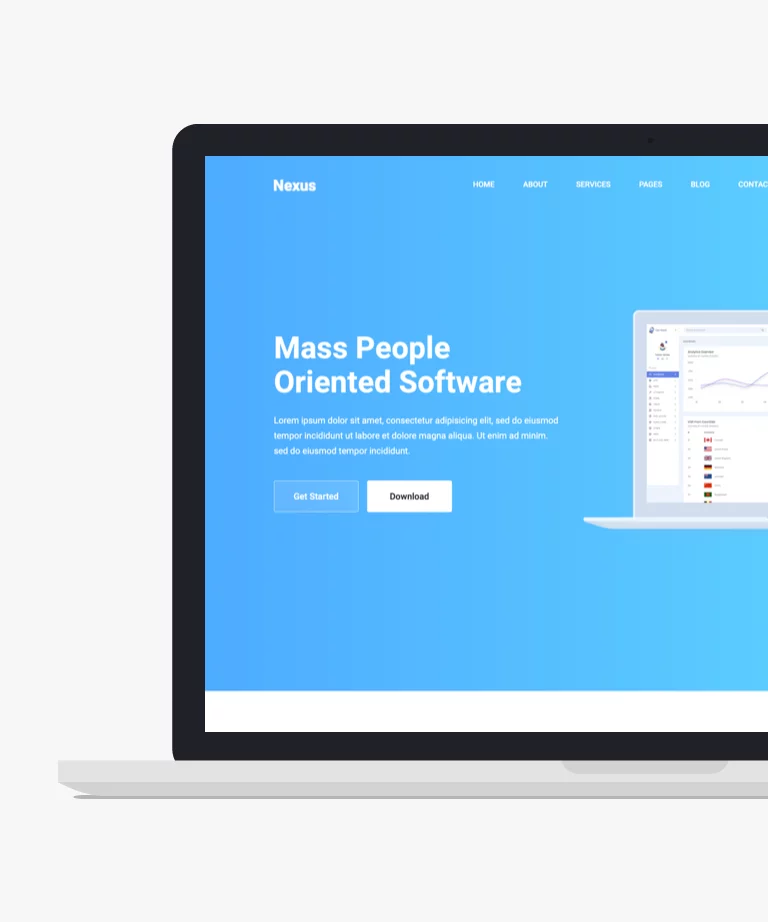
Download
If you're aiming to create a website for software or apps, Nexus is the perfect solution. This free and very clean Bootstrap 4 HTML5, CSS template offers a multi-page layout suitable for various apps, SaaS, and software. Featuring a simple yet modern design with bold typography and vibrant colors, Nexus incorporates the latest trends and web technologies. Equipped with essential features like sticky navigation, call-to-action buttons, full-screen banners, drop-down menus, pricing tables, and hover effects, Nexus ensures a seamless user experience. It is compatible with all major browsers, retina-ready, and optimized for high performance. Forget your worries—your website will work flawlessly. Dive into the potential of Nexus by creating your project with this free app landing multi-page template.
-
Free Bootstrap templates
-
Free Clean templates
-
Free CSS templates
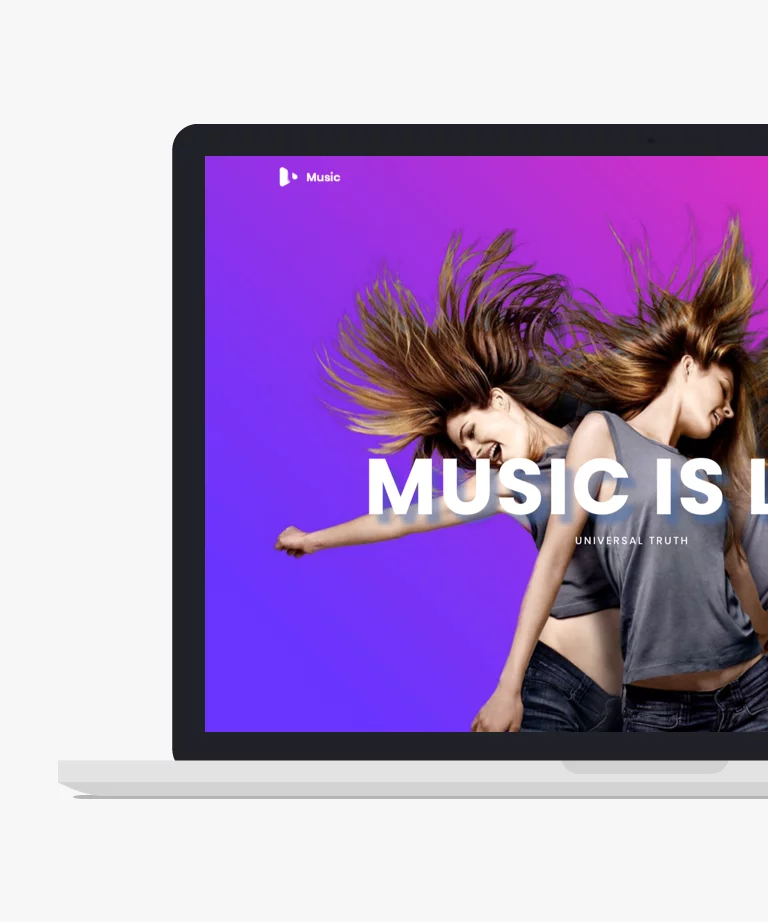
Download
Music is a one-page free Bootstrap HTML5 template crafted for musicians, artists, bands, radio stations, or anyone involved in the entertainment or creative industry. Its clean design features a full-screen gradient header, backlit text shadow effect on prominent and bold header text, and a one-page layout with eight unique UI blocks, giving it a cool and visually appealing look. The gradient overlay effect adds an extra layer of beauty to the template, making it an excellent choice for creating a free HTML5 creative entertainment website with Music. The bundled package includes well-managed and commented code, ensuring a smooth and easy customization experience. Music also incorporates the latest features such as a hero header, sticky navigation, testimonial carousel, embedded YouTube video player, and parallax effects. Unpack, explore, and unleash your creativity to build your free Bootstrap HTML5 Music website with Music.
-
Free Bootstrap templates
-
Free CSS templates
-
Free One page templates

Download
Voyage One Pager is a contemporary, animation-enhanced, free website template equipped with responsiveness, parallax effect, a sortable gallery, and more. This Free HTML and CSS One Page Website Template is a valuable asset for those in the hotel, tourism, or travel industry looking to establish an online presence. This one-page free HTML5 template boasts a simple yet elegant and sturdy design. It strikes the perfect balance between flat colors and captivating imagery. Upon loading, users are greeted by a unique animated pre-loader followed by a full-screen header background image featuring a ghost call-to-action button. Moreover, the header image supports a slideshow feature. As visitors scroll down, the navigation bar transitions to a sticky position, offering easy access to various sections of the website.
-
Free Bootstrap templates
-
Free CSS templates
-
Free One page templates

Download
Untree's Instant is a free multipurpose Bootstrap template that is a perfect choice for any kind of website. Instant has a clean, and professional design which will ensure that your new website stands out from the crowd. This free HTML template uses a parallax effect on the header section, followed by eye-catching separated sections. After you download this template for free you will get 6 premade demo pages that will fasten your development process.
-
Free Bootstrap templates
-
Free CSS templates
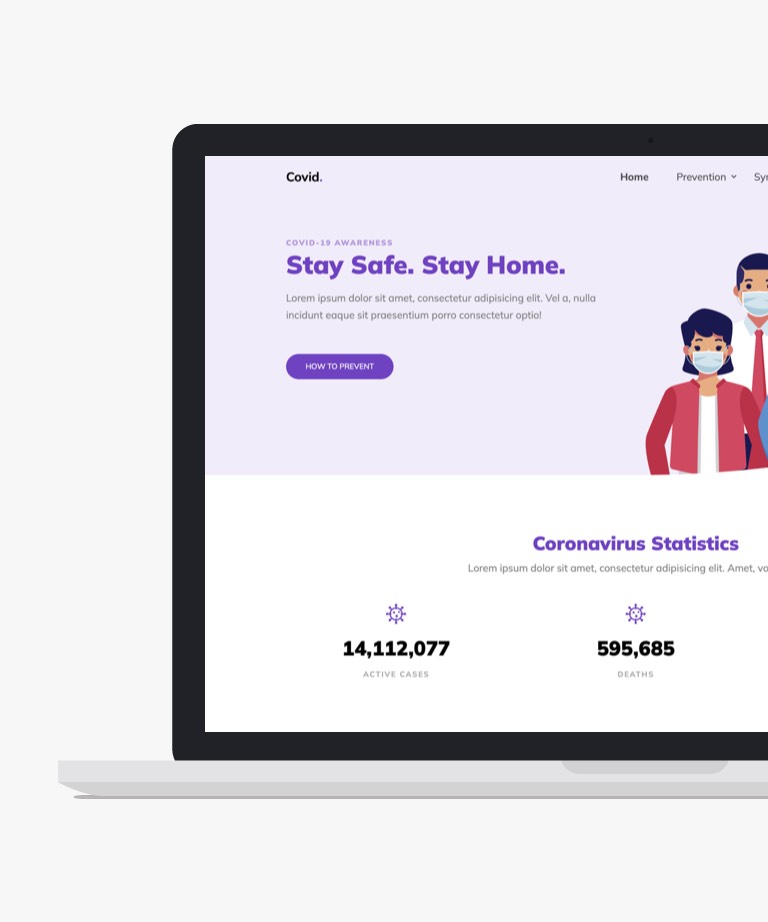
Download
Covid is a free Bootstrap Medical template designed to promote safety and generosity during the pandemic. It provides a platform for charitable initiatives aimed at helping those who are struggling. With Covid, you can easily create a charity website to expand your reach and support noble causes. The template is fully responsive, meticulously crafted, and features a minimalist design that ensures compatibility with all modern browsers, retina screens, and devices. Featuring well-structured code and a user-friendly design, Covid is accessible to anyone with basic HTML & CSS knowledge. You can customize it to fit your preferences and style without starting from scratch, saving you time and effort. With a range of useful features including a sticky top navigation bar, drop-down menu, custom illustrations, appealing color scheme, and a blog section, Covid provides everything you need to build your online medical project and make a positive impact on people's lives during these challenging times.
-
Free Bootstrap templates
-
Free CSS templates
-
Free Medical templates

Download
Energym is a free Bootstrap HTML, CSS template tailored for fitness websites, catering specifically to gyms, yoga studios, health clubs, dance studios, and similar organizations. Boasting a meticulous design with beautiful layouts, this template ensures a seamless user experience across all devices and major browsers. With Energym, you can skip the hassle of starting from scratch as it comes fully optimized and ready to use. Furthermore, Energym offers ample room for customization, allowing you to tailor and enhance its appearance and performance according to your preferences. Packed with modern features like a hero header, call-to-action buttons, hover effects, sliders, and testimonials, this template ensures an engaging and dynamic presentation. Additionally, Energym guarantees impeccable display on any screen size, making it suitable for diverse audiences.
-
Free Bootstrap templates
-
Free CSS templates
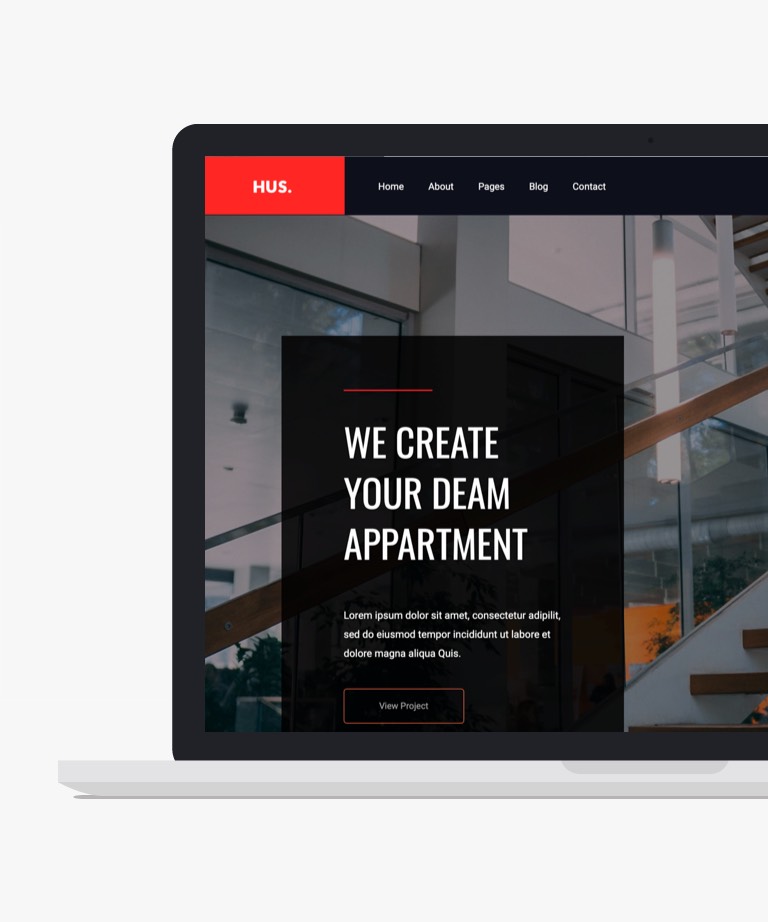
Download
Hus is an HTML5 Bootstrap website template that is completely free and it is suitable for any kind of business. This template has a responsive layout that is optimized for cross-browser usage, ensuring that it appears flawlessly on every device. Hus templates layout includes a variety of useful features, such as a beautiful hero, sticky navigation, drop-down menu, and call to action button. Additionally, the code is well-organized and commented, making it easy to customize to meet your specific requirements. Other features include breadcrumbs, UI elements, a blog section, a search option, Instagram feeds, comment form UI, pagination UI, Google Maps, a newsletter subscription form, a working contact form, and FontAwesome font icons. Extensive documentation is also provided to assist with customization.
-
Free Bootstrap templates
-
Free CSS templates
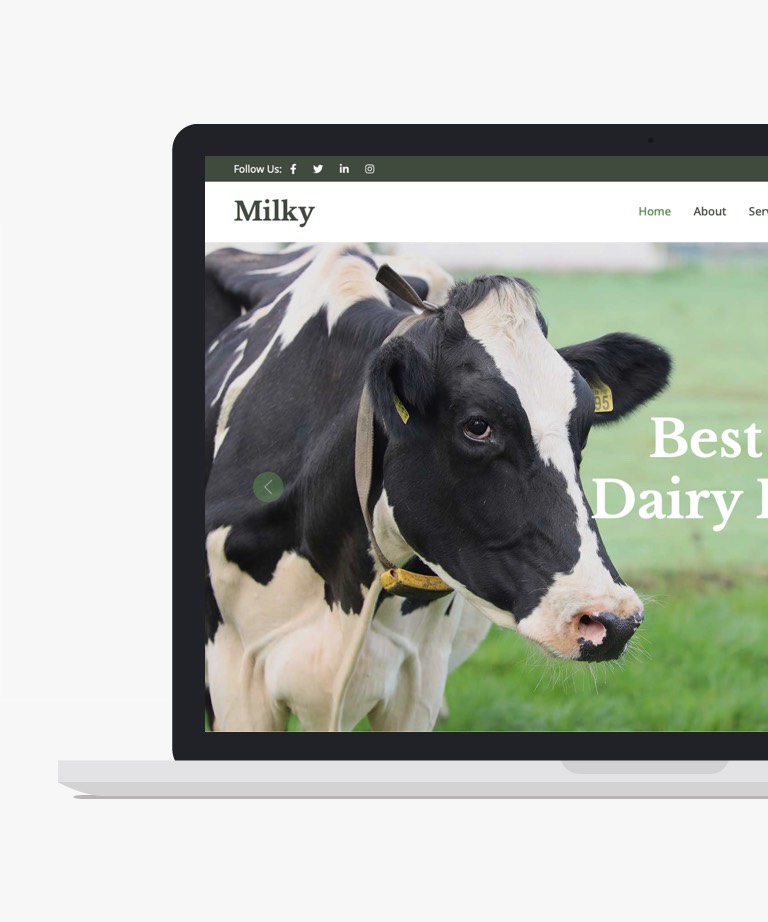
Download
Milky is a feature-rich free HTML template that offers a wide range of HTML and CSS elements. Primarily designed for agriculture-related websites like farming, gardening, and dairy, Milky showcases a clean, vibrant, and modern design with a well-structured layout. While it caters specifically to farm-related industries, the template can be customized to suit various purposes with the appropriate expertise. Milky boasts developer-friendly code, complete with helpful comments, allowing for easy modifications and enhancements. It leverages the power of the Bootstrap 5 framework, ensuring responsiveness and compatibility across different devices and screens. Whether you're looking to create a website for a farm, gardening service, or any other related venture, Milky provides a solid foundation with its extensive features and adaptable design, empowering you to create a visually appealing and functional online presence.
-
Free Bootstrap templates
-
Free CSS templates
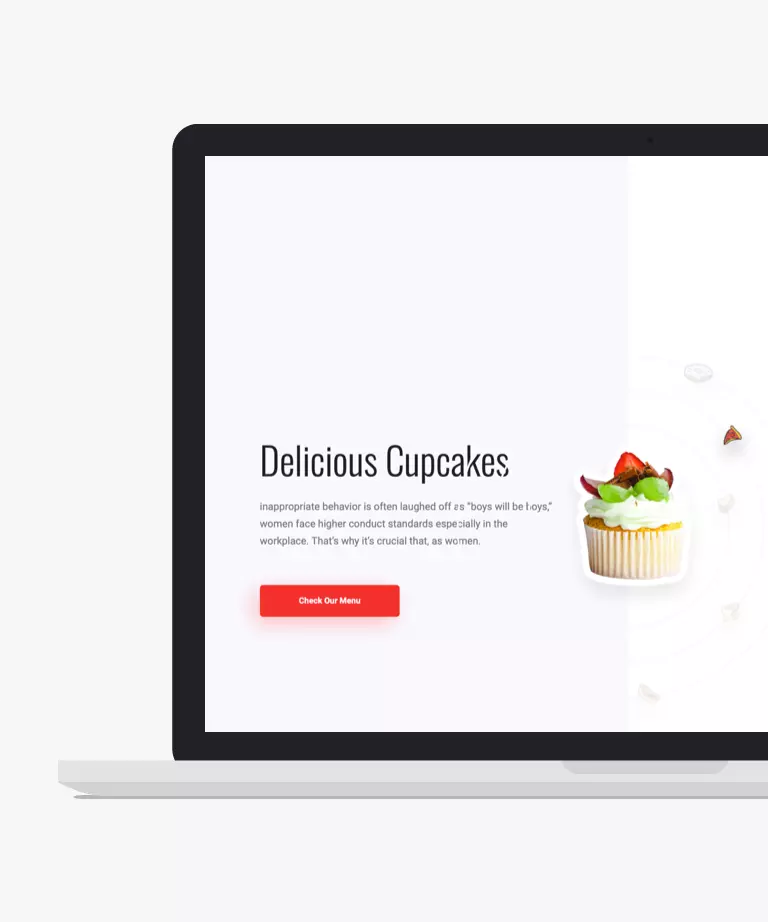
Download
Foodbar is a versatile website template tailored for food and beverage establishments such as restaurants, cafes, coffee shops, and pubs. With its clean, minimal, and visually appealing design, Foodbar is perfect for showcasing your culinary offerings. This free Bootstrap 4 HTML5 template features a responsive multi-page layout, ensuring compatibility across various devices. One of the standout features of Foodbar is its ease of customization, thanks to its well-commented codes. Whether you're a seasoned developer or a novice, you'll find it effortless to tailor this template to suit your specific needs. Additionally, Foodbar comes packed with a range of impressive features, including a mesmerizing glowing animation, modal light gallery, testimonials section, burger menu with sidebar navigation, and breadcrumbs. With Foodbar, you have everything you need to kickstart your food-related project and get it off the ground.
-
Free Bootstrap templates
-
Free Clean templates
-
Free CSS templates
-
Free Food & Restaurant templates

Download
HostPro is an exceptionally modern free Bootstrap hosting template, meticulously constructed with a responsive bootstrap framework and semantic coding. Ideal for domain and hosting websites, HostPro offers a carefully designed interface that is user-friendly and easily customizable. Built on the responsive Bootstrap framework, HostPro is available as a free download for both personal and commercial use. However, the free version requires a backlink to BootstrapMart in the footer. For those seeking to remove this backlink, the pro version offers additional features and benefits. Exploring the pro version might be worthwhile for those considering an upgrade.
-
Free Bootstrap templates
-
Free CSS templates
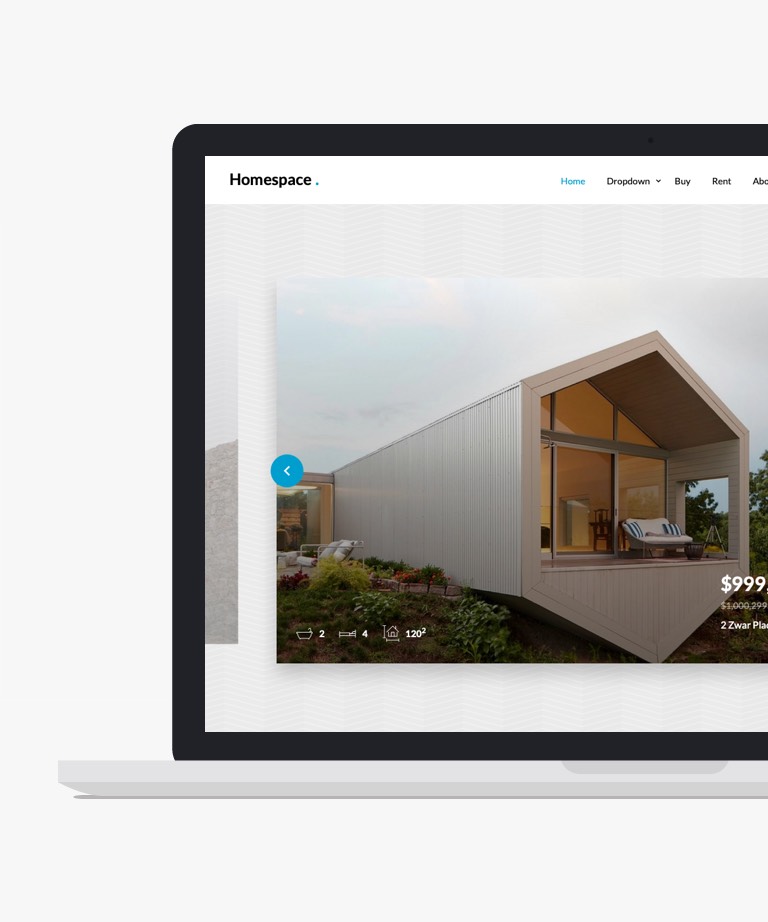
Download
HomeSpace is a meticulously designed HTML website template specifically tailored for real estate purposes, utilizing the power of Bootstrap 4. It encompasses all the essential elements necessary for establishing a thriving real estate website. This visually stunning and thoughtfully optimized HTML template presents an array of user-friendly features to enhance the overall user experience. With its Retina-ready display and seamless responsiveness, HomeSpace ensures seamless performance across various devices, including desktop and mobile screens. Featuring eight pre-designed demo pages, HomeSpace offers a diverse range of templates, allowing for easy customization and flexibility. It's well-structured code and intuitive design make it a breeze to navigate and modify. Whether you're a real estate professional or a web developer, HomeSpace provides the perfect foundation to create an impressive and functional real estate website. Experience the benefits of this free HTML template and captivate your audience with its captivating aesthetics and user-friendly interface.
-
Free Bootstrap templates
-
Free Clean templates
-
Free CSS templates
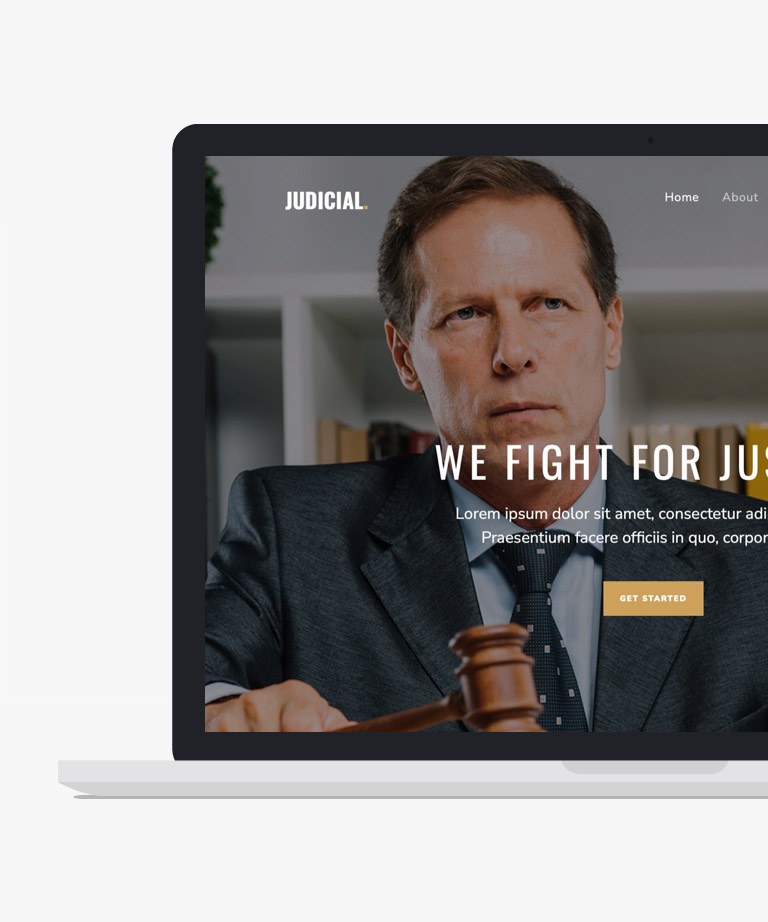
Download
Judicial template is a premium web design solution for legal businesses and lawyer agencies. It boasts a stunning and attention-grabbing interface that is fully responsive. This template comes with various features such as a hero header with a parallax effect, a call to action button, counters, testimonials, and more. It is also built with a well-commented and organized code structure that is easy to customize. Judicial is based on Bootstrap, HTML5 & CSS3 and it has cross-browser compatibility. It is a multi-page template that includes hover effects, accordions, load-on scroll animation, a modal video player, footer navigation, and font icons. Additionally, it features free a newsletter subscription form, and a contact form to enhance the user experience.
-
Free Bootstrap templates
-
Free CSS templates

Download
Industrie presents itself as a versatile free Bootstrap 4 HTML5 business website template tailored for burgeoning enterprises. Specifically crafted for industries such as oil and gas, industrial construction, mechanical engineering, or automated manufacturing, Industrie boasts a modern yet sleek and uncluttered design. With its responsive multi-page layout and dedicated blog page template for news dissemination, Industrie ensures optimal visibility and engagement across various devices and platforms. Packed with essential tools and assets, the template offers features like parallax backgrounds, sliders, drop-down menus, and testimonials to enhance user experience and convey professionalism. Additionally, Industrie includes a modal video player, adding a dynamic element to your website's content presentation. Thanks to its user-friendly design and intuitive customization options, creating a compelling online presence with Industrie is as effortless as slicing through butter.
-
Free Bootstrap templates
-
Free CSS templates
-
Free Minimal templates
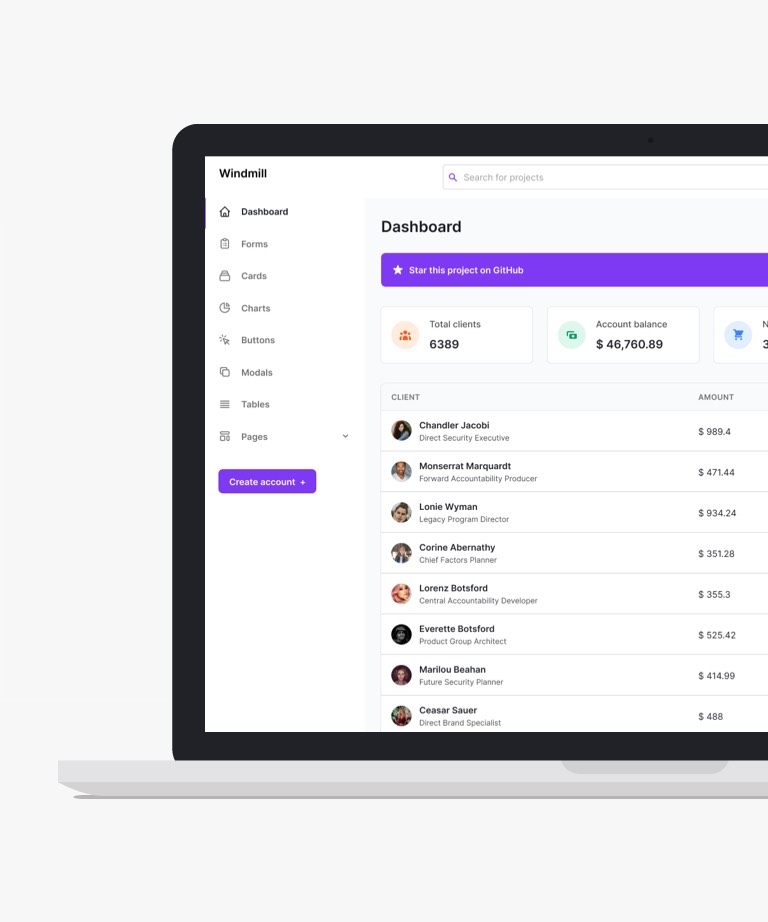
Download
Windmill is a free admin dashboard template that is built using the latest framework, Tailwind CSS. This beautiful and professional website template allows you to style your required pages with standard web design according to your needs. Additionally, Windmill is 100% responsive and looks flawless on any device regardless of its screen size. It's also compatible with the most recent browsers, making it an excellent choice for admin panels and dashboards in online applications. This free Tailwind CSS admin dashboard website template comes equipped with many contemporary features and assets such as forms, charts, cards, buttons, modal, login page, create account page, forget password page, blank page, light & dark modes, and many more. Its well-documented and well-organized code makes it simple to customize according to your needs. You can start your project with Windmill to give your admin dashboard a professional appearance.
-
Free CSS templates
-
Free Dashboard templates
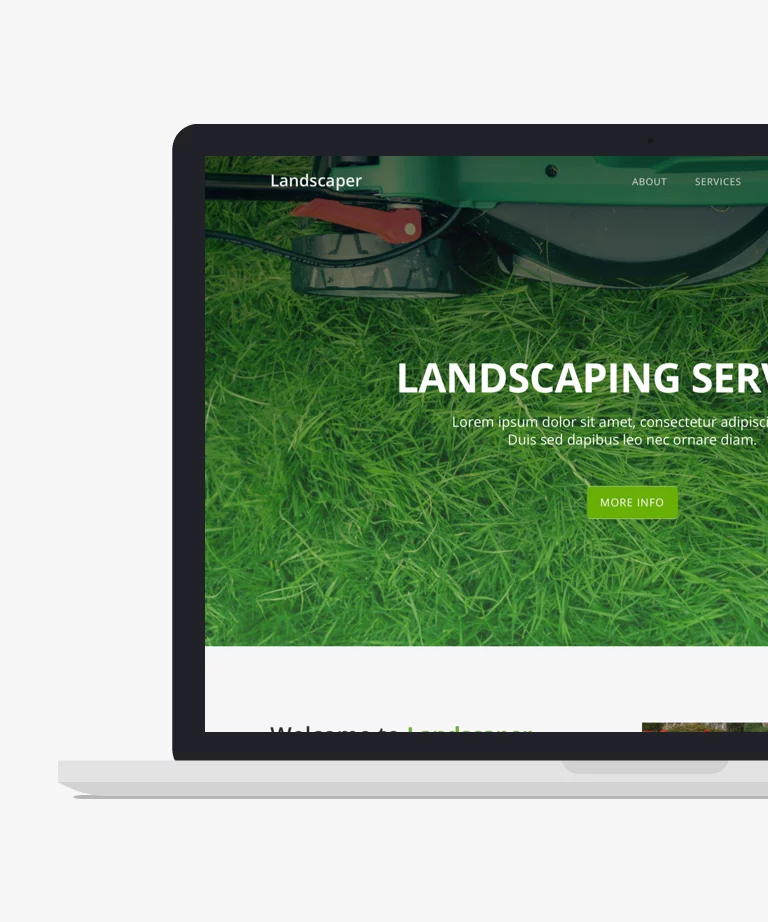
Download
Landscaper is a free Bootstrap HTML5 one-page template tailor-made for gardening and landscaping businesses, including lawn services, landscape architects, and related services. With a clean, minimal, and straightforward design, it offers a one-page layout comprising seven distinct UI blocks. This template boasts trendy features such as a hero header, sticky navigation, parallax background, and call-to-action buttons. Additionally, Landscaper includes a working contact form with custom JavaScript validation for enhanced functionality. The well-structured code ensures easy customization, making the creative process with Landscaper as smooth as butter.
-
Free Bootstrap templates
-
Free CSS templates
-
Free One page templates

Download
Studio, a free Bootstrap photography template, boasts a refreshing design that captivates every visitor. Packed with exciting features like the latest Bootstrap 4 and Owl Carousel, this template offers not only a visually appealing outlook but also a responsive layout with maximum flexibility. The homepage, though not extensively scrollable, holds enough elements to capture users' attention. The vivid color combination, coupled with a creative carousel slider, creates a visually satisfying experience. Social media links stay prominently on the left, and clicking on the mail icon triggers a pop-up with a convenient contact form. Navigating to other pages is seamless with the sticky navigation bar.
-
Free Bootstrap templates
-
Free CSS templates
-
Free Photography templates
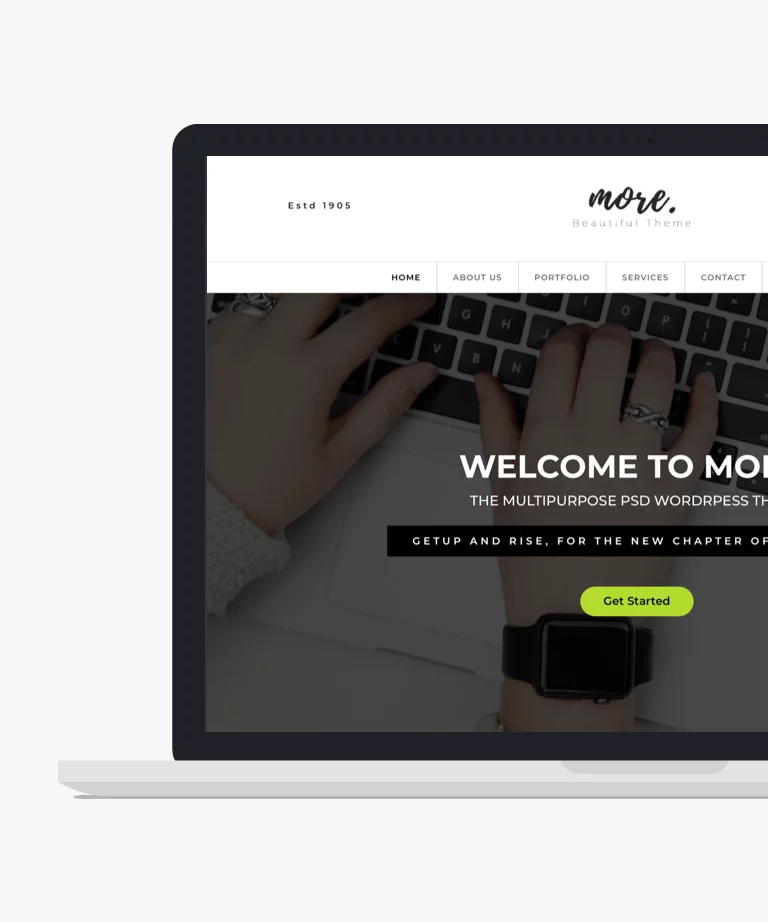
Download
More is a free Bootstrap 4 HTML5 and CSS website template comes packed with an array of stunning features and assets, including a hero header, sticky navigation, lightbox portfolio grid, and more. Additionally, it includes a newsletter subscription widget and a contact form with HTML5 validation. With its appealing typography and FontAwesome font icons, creating with More is a seamless experience, offering quick and easy customization. Simply unpack it and start building your project effortlessly!
-
Free Bootstrap templates
-
Free CSS templates
-
Free Minimal templates
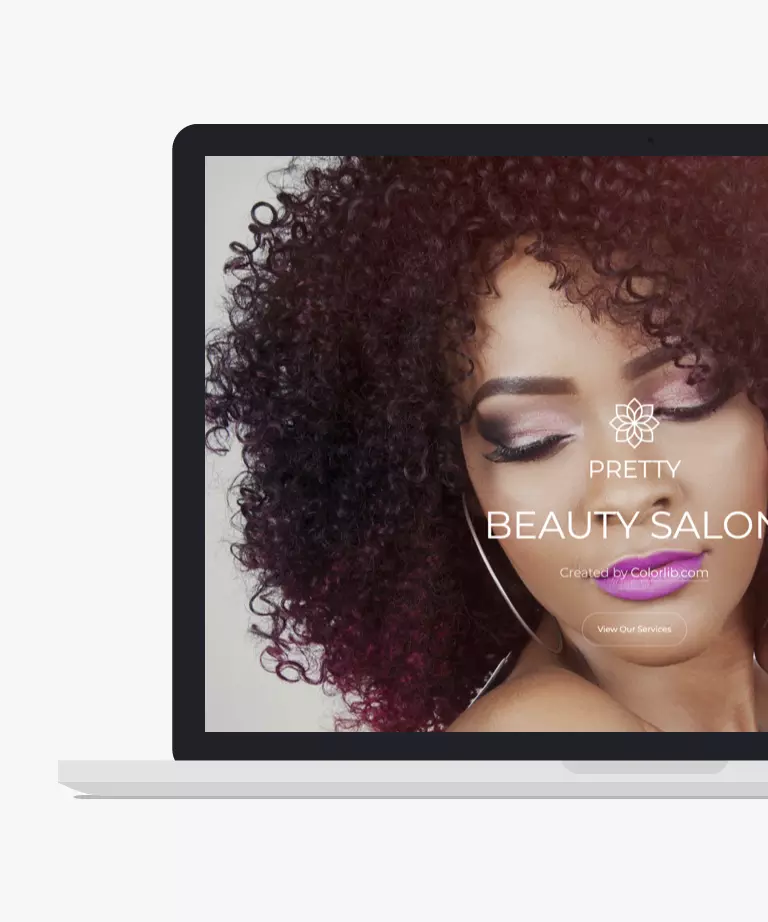
Download
Pretty is a free Bootstrap HTML and CSS template designed for beauty salons. With its clean and minimal design and multi-page responsive layout, Pretty is perfect for hair salons, wellness centers, spas, and similar small businesses. Customizing and tweaking Pretty is a breeze, making it easy to personalize according to your preferences. Additionally, Pretty boasts stunning features such as a hero header, parallax effect, sticky navbar, scroll animation, pricing table, and fun fact counters. It also includes FontAwesome font icons, a working contact form, and a blog section. With Pretty, you can create a stylish and professional website to showcase your beauty salon and get your project rolling in no time!
-
Free Bootstrap templates
-
Free CSS templates

Download
Look is a responsive, free Bootstrap 4 HTML5, CSS3 website template tailored for model agency websites. Boasting a stylish, clean, and minimal design, it offers a multi-page layout ideal for showcasing model profiles. Perfect for model agencies, fashion labels, and design firms, The Look comes with a range of impressive features. Highlights include a slider, menu overlay, on-scroll content reveal, testimonial carousel, and a functional contact form. It also includes beautiful font icons from Icomoon fonts, as well as dedicated model profile pages. With its user-friendly customization options, The Look allows you to create and customize your project effortlessly. Dive deep into your creativity with The Look!
-
Free Agency templates
-
Free Bootstrap templates
-
Free CSS templates

Download
Game Warrior is a cutting-edge free Bootstrap 4 HTML5 gaming website template, meticulously crafted for gaming enthusiasts, game showcases, and game landing pages. With its responsive and multi-page layout, Game Warrior is primed to elevate your gaming experience to the next level. This top-tier template offers a comprehensive suite of features and assets essential for gaming websites. From a captivating slider on the header to seamless on-scroll reveal animations and elegant FontAwesome icons, Game Warrior has it all. Additionally, its intuitive codes make customization a breeze, allowing you to tailor your website to your specific needs effortlessly. Moreover, Game Warrior boasts a host of additional functionalities, including a dynamic latest news scroll on the header, a sleek preloader, captivating artistic graphics and images, and a dedicated blog section. With Game Warrior as your ally, you'll have everything you need to bring your gaming project to fruition.
-
Free Bootstrap templates
-
Free CSS templates
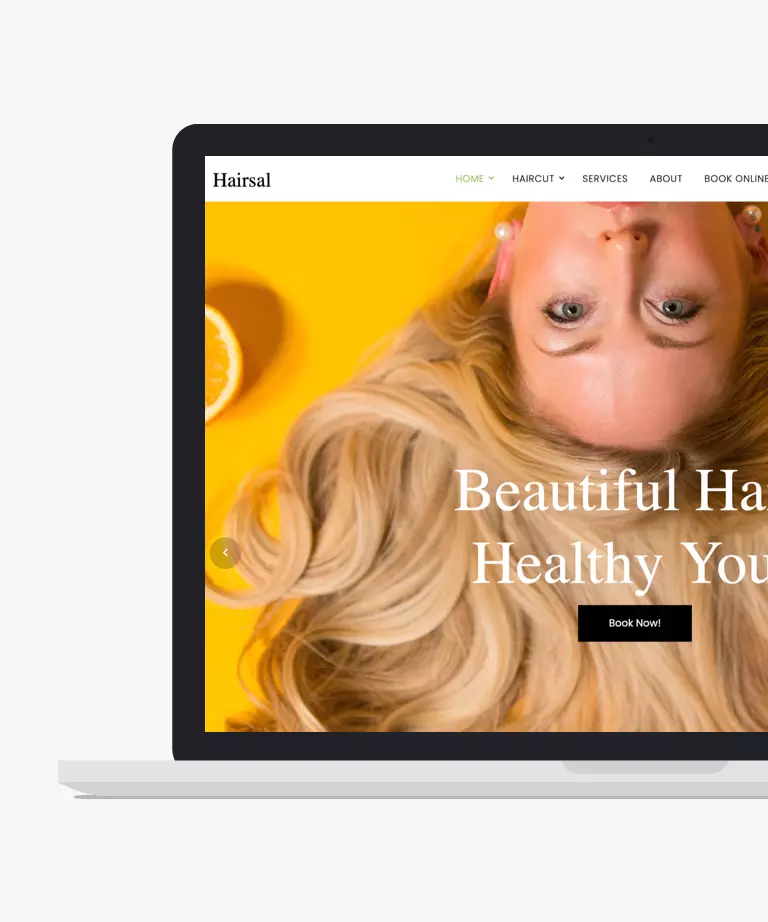
Download
Hairsal presents itself as a versatile free website template suitable for hair salons, small businesses, and startups. With its responsive layout and contemporary design, Hairsal offers a modern and stylish aesthetic, enhanced by its clean and minimalistic approach. This multi-page template is built on Bootstrap 4 HTML5, ensuring compatibility and flexibility. In addition to its aesthetic appeal, Hairsal boasts several features to elevate user experience. These include an online booking form with a convenient date picker, as well as engaging elements like parallax effect, slider, drop-down menu, and modal Vimeo video player. With Hairsal, you have the perfect foundation to bring your project to life and enjoy the process.
-
Free Bootstrap templates
-
Free Clean templates
-
Free CSS templates

Download
Ronald is a free Bootstrap 4 HTML5 digital agency website template, featuring a responsive design and a clean, minimal layout. With its multi-page structure and intuitive, well-structured codebase, Ronald ensures smooth building experiences. Additionally, the code is thoroughly commented, facilitating easy customization. This template comes loaded with modern and tech-savvy features, including a hero header, right sidebar navigation, call-to-action buttons, testimonials, and portfolio sections. Compatible with all major web browsers, Ronald also offers sticky navigation, breadcrumbs, accordions, and an Instagram feed integration. Start your project with Ronald and enjoy creating with this top-grade template.
-
Free Agency templates
-
Free Bootstrap templates
-
Free CSS templates
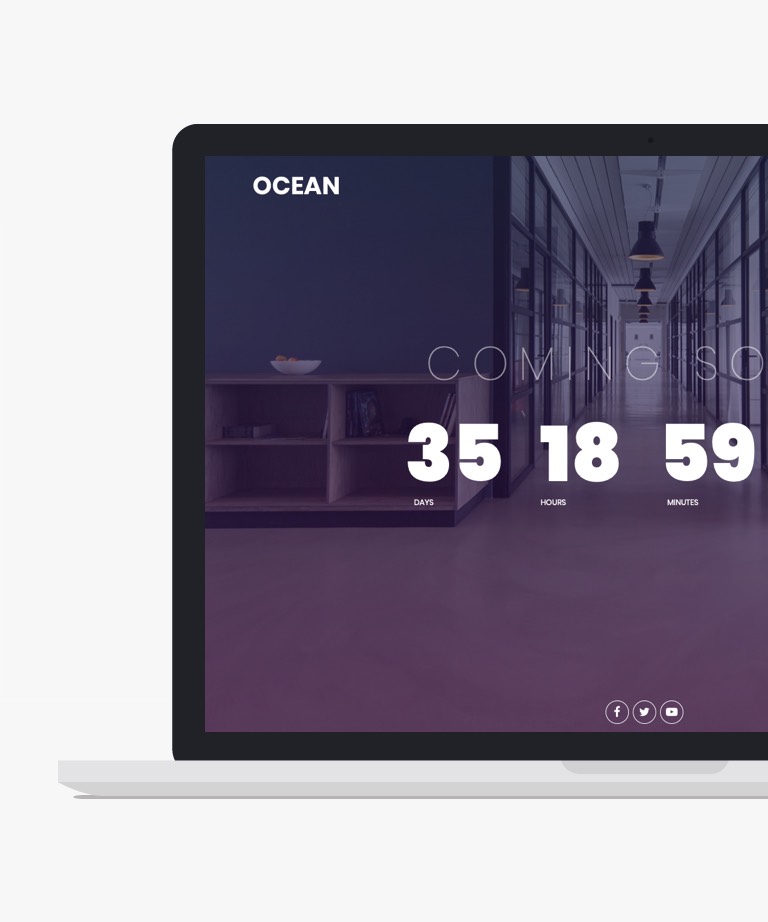
Download
One of the top picks among free coming soon HTML templates is the Ocean template, which stands out for its simple yet elegant design. The most striking feature of this template is the large, bold numbers that prominently display the countdown timer, making it easy for visitors to see how much time remains until your website launches. In addition, the entire background of the template is presented as a slideshow, which adds a touch of uniqueness to the design. Like many other high-quality HTML templates, Ocean is built on the reliable Bootstrap framework, ensuring it is fully responsive and looks great on all devices and screen sizes. Whether you want to create a coming soon page for a personal blog, a corporate website, or any other type of online presence, the Ocean template is an excellent choice to help you make a great first impression.
-
Free Coming soon templates
-
Free CSS templates
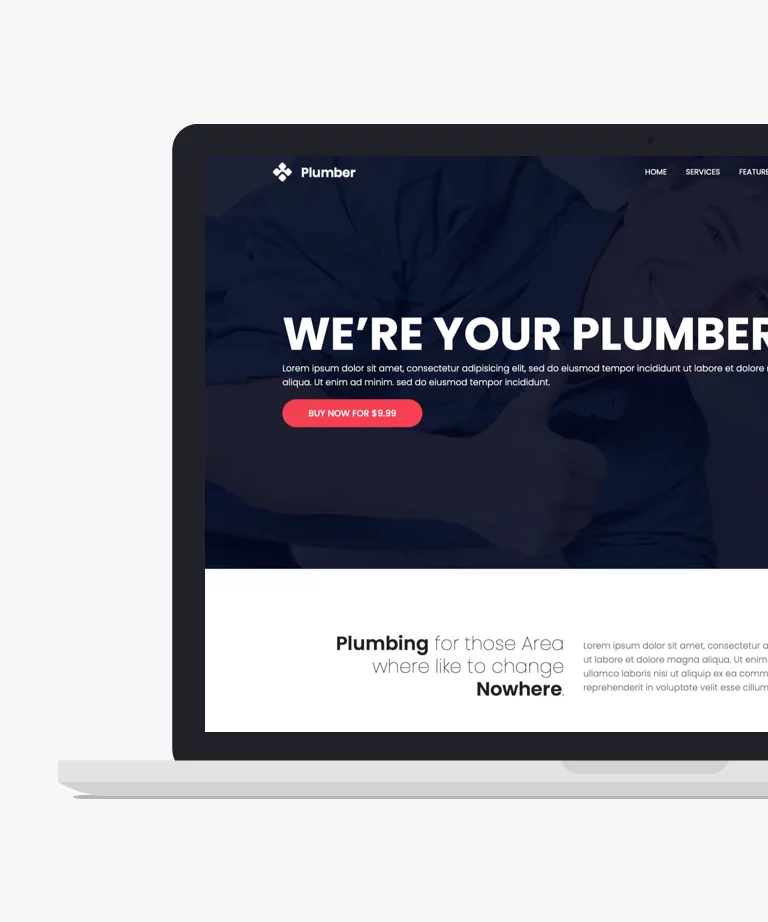
Download
Elevate your plumbing business with this smart choice - a free HTML5 plumbing HTML and CSS website template. With its well-designed, clean, and one-page layout, this template embraces modern technology support. Designed to enhance your plumbing company's online presence, this bootstrap template features an elegant, single-page layout with a sticky navigation menu that ensures easy access to all essential sections. The header section sets the tone with its beautiful design, followed by a compelling services section featuring a ghost button and on-hover embedded images for a visually appealing presentation of your business. This free Bootstrap template is responsive and boasts cross-browser compatibility, powered by the latest Bootstrap 4.
-
Free Bootstrap templates
-
Free CSS templates

Download
Ubeasa stands out as a first-rate free HTML and CSS template, combining cleanliness with responsiveness and attractiveness. This free Bootstrap HTML5 template is tailored for professional business websites, digital agencies, or creative agencies with its simple, minimal, and one-page layout. Featuring an intuitive and easily customizable code structure, Ubeasa incorporates modern elements such as a hero header, slider, portfolio grid, and accordions. Building with Ubeasa is a smooth and straightforward process, making it an ideal choice for your next project.
-
Free Bootstrap templates
-
Free CSS templates
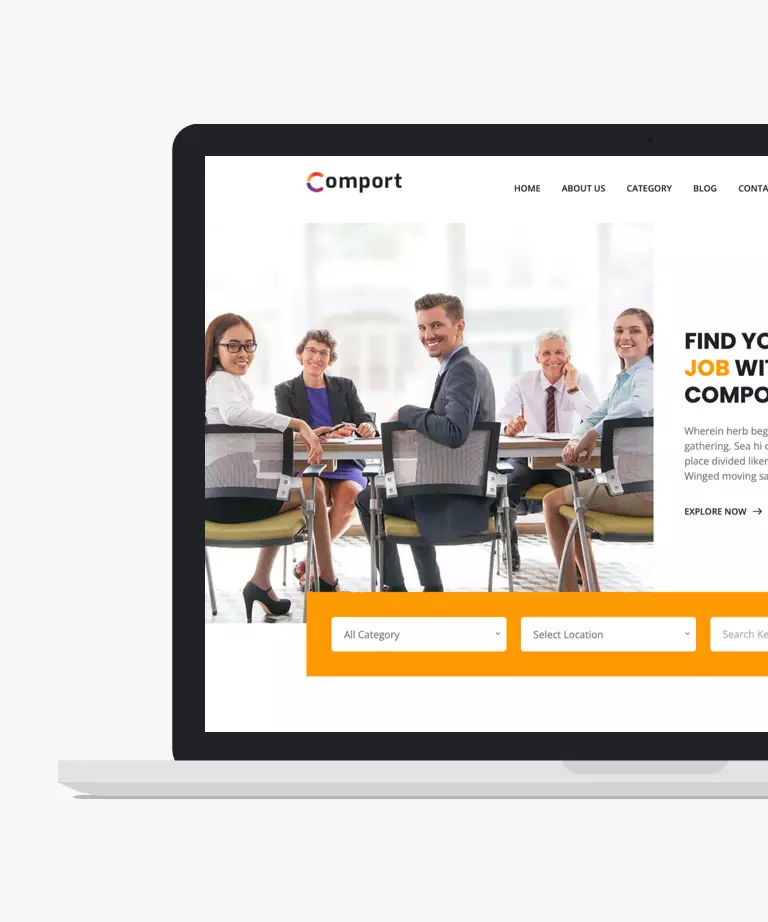
Download
Comport is a complimentary job board template built on Bootstrap 4 and HTML5. With a fully responsive multi-page layout, it ensures seamless accessibility across various devices. Its captivating and dynamic design ensures that Comport stands out as an attention-grabbing theme. Additionally, it is optimized for mobile devices and is compatible across different web browsers. Furthermore, Comport includes a blog section, allowing users to share news and engage in content marketing efforts. It also features an array of advanced functionalities such as an advanced search bar, a testimonial carousel, call-to-action buttons, hover effects on buttons, an animated CSS3 preloader, and a drop-down menu, among others. Moreover, Comport comes equipped with a contact form integrated with Google Maps. Thanks to its easily customizable and well-commented code structure, even beginners can navigate the development process with ease. With Comport, you can create a compelling job board platform tailored to your needs.
-
Free Bootstrap templates
-
Free CSS templates
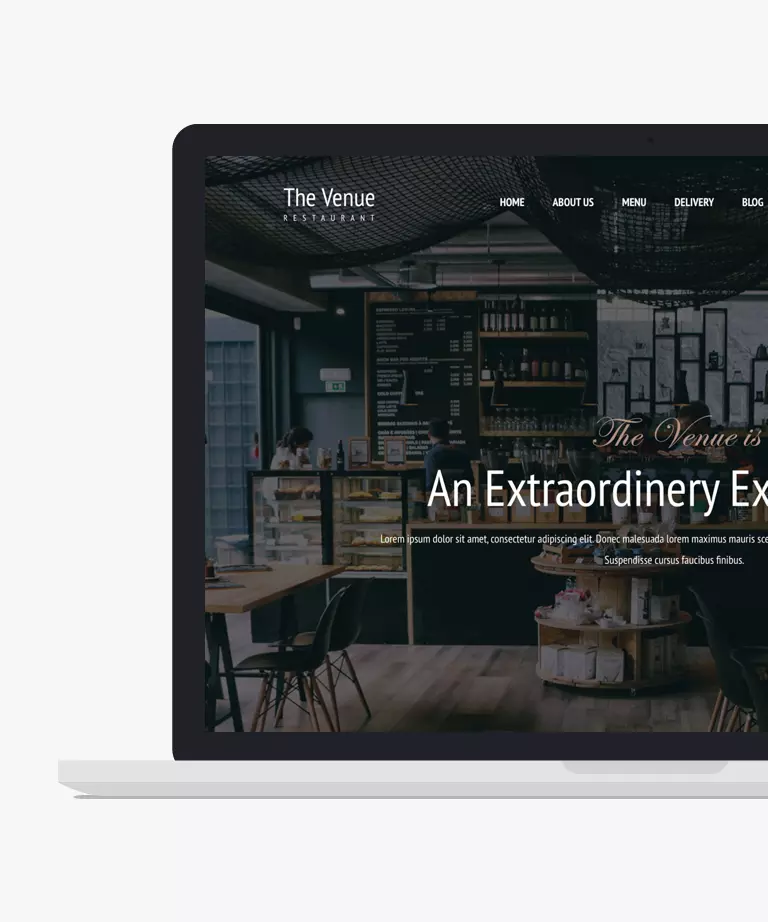
Download
TheVenue is a free Bootstrap 4 HTML5 and CSS3 restaurant website template featuring a responsive multi-page design. It offers stunning features such as a parallax effect, video player, unique food menu, reservation form with date and time picker, and a fully functional contact page with Google Maps integration. Additionally, TheVenue is easy to understand and customize, ensuring a smooth development journey. It is an ideal choice for websites catering to restaurants, cafes, bars, and similar businesses. With TheVenue, create a project that shines and stands out with its flexibility and dynamic capabilities!
-
Free Bootstrap templates
-
Free CSS templates
-
Free Food & Restaurant templates

Download
The Art Museum free museum website template is designed with a responsive layout, making it ideal for showcasing artworks. It provides multiple pages to share information about your organization, showcase a photo gallery, sell tickets, and more. The template includes a ready element page for variety and blog pages to engage readers. Additionally, it comes with documentation for users unfamiliar with free Bootstrap templates. Modern features like Google Maps, social icons, email subscription, and a lightbox gallery are also included.
-
Free Bootstrap templates
-
Free CSS templates
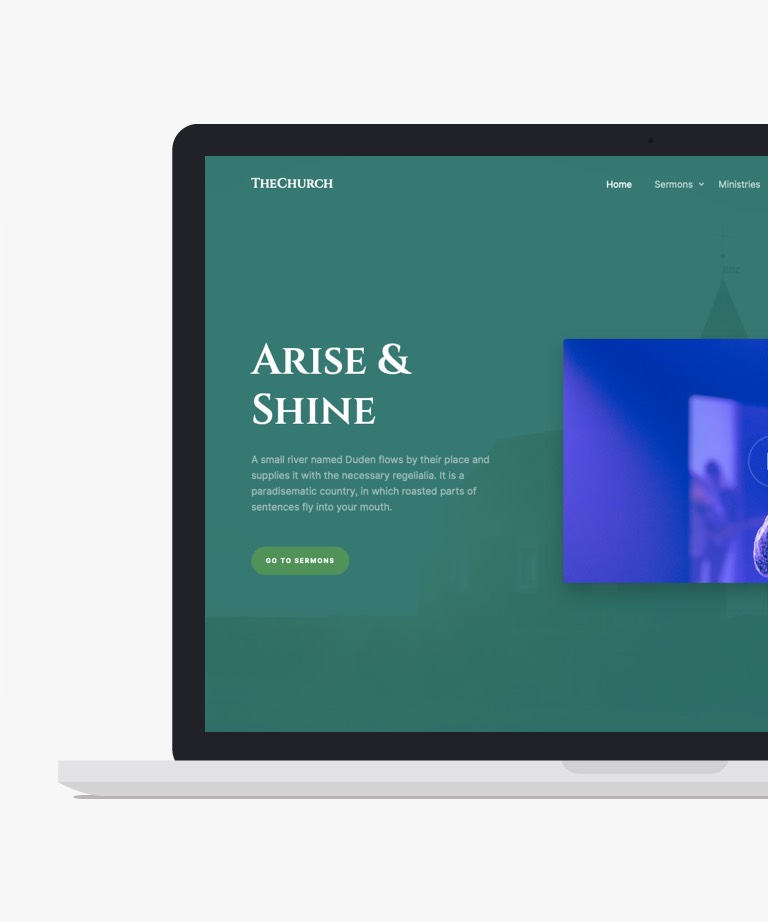
Download
Welcome to TheChurch, an elegant and free HTML template featuring a clean and sophisticated design. This template is specifically tailored for church websites, but its Bootstrap foundation allows for easy customization to suit any purpose. With TheChurch, you can effortlessly showcase videos, photos, and podcast episodes in a visually pleasing manner, engaging your audience effectively. The template's versatility is further enhanced by the inclusion of six pre-built demo pages, offering a head start in creating your ideal website. Whether you're a religious organization, a spiritual community, or simply looking to create an elegant and serene online presence, TheChurch provides the perfect platform. Its clean design and intuitive layout create a tranquil and welcoming atmosphere, inviting visitors to explore and engage with your content. Unleash your creativity with TheChurch template, and craft a website that reflects your unique vision and purpose.
-
Free Bootstrap templates
-
Free CSS templates

Download
Grab this Free Food Product Landing Page template crafted using Bootstrap 5. Ideal for various food products, from packaged foods to drinks, beverages, and juices, this HTML CSS template suits diverse needs. Featuring consistently organized code, it's easily maintainable and comprehensible. Users of any skill level can effortlessly grasp and customize it to fit their specific needs. It serves as an excellent choice for crafting landing pages or sales pages, be it for your affiliate products, dropshipping items, and more. This template harnesses the potential of the Bootstrap framework, leveraging the latest Bootstrap 5 features.
-
Free Bootstrap templates
-
Free CSS templates
-
Free Landing page templates
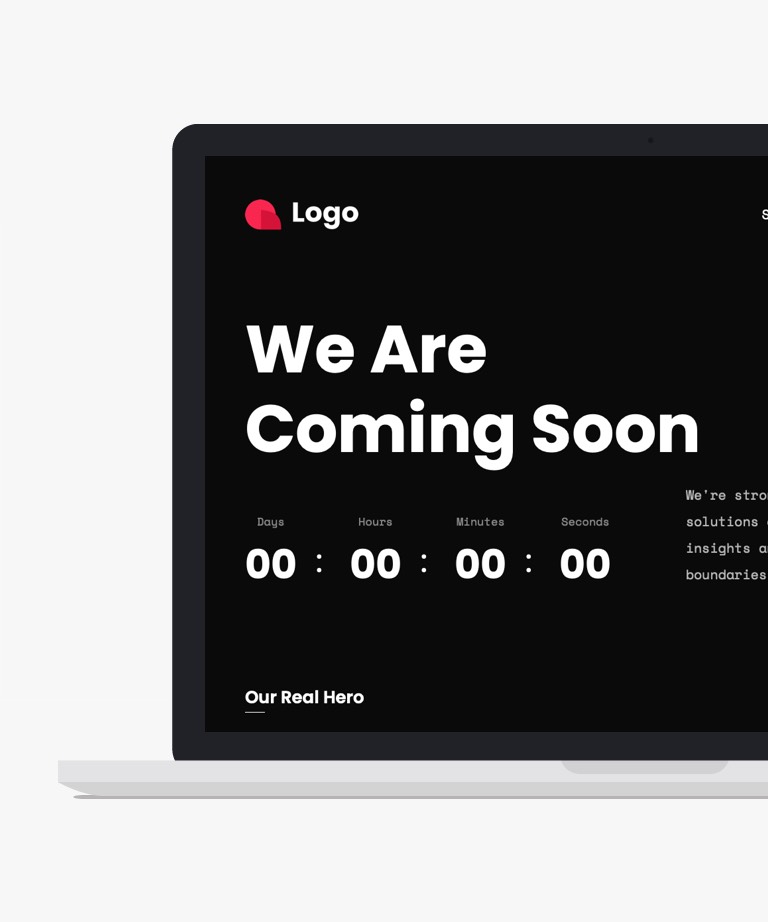
Download
Sooner is a sleek and minimalistic free coming soon template with a stylish dark design. Its standout feature is the team section, where you can introduce your team members along with their contact details. Whether you're launching a startup or building a company website, Sooner is the perfect choice for a simple yet cool template. Its minimalist approach highlights the essential information and creates an impactful visual presentation. With Sooner, you can effectively showcase your team and generate interest from your target audience. The template's clean code and easy customization options make it a convenient solution for creating an impressive coming soon page. Choose Sooner to make a bold statement and build anticipation for your upcoming venture.
-
Free Coming soon templates
-
Free CSS templates
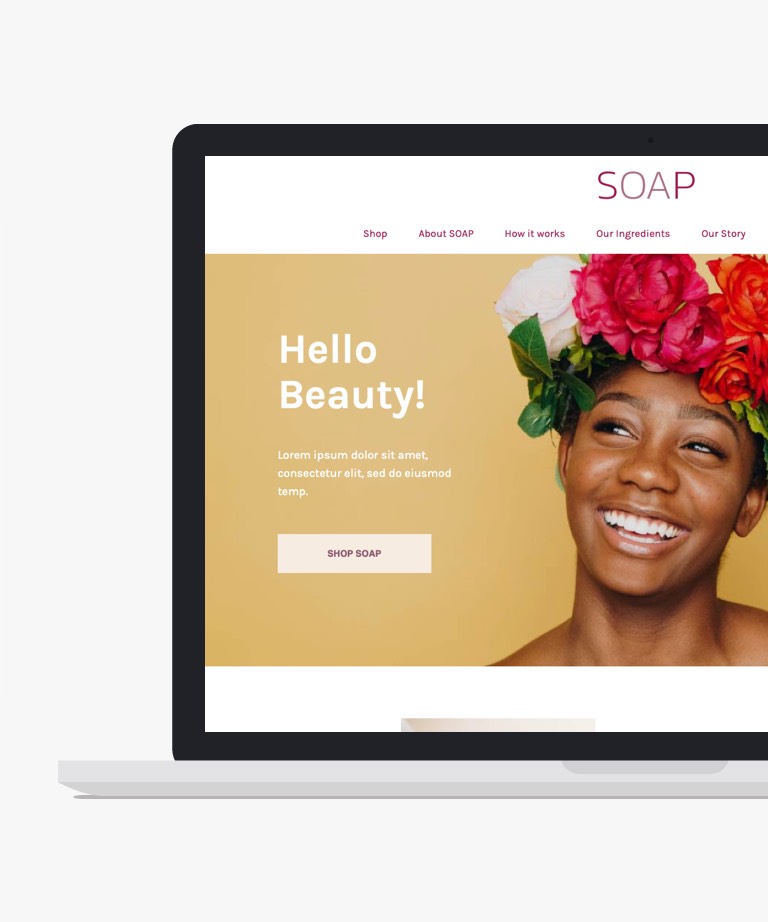
Download
SOAP is an exceptional free one-pager HTML & CSS Template designed specifically for showcasing beauty products. With SOAP, you can effectively highlight the uniqueness and appeal of your beauty products. This template is built using Base (http://getbase.org) and offers a fully responsive layout, ensuring that your website looks stunning on any device. SOAP boasts a comprehensive set of features, including a full 12-column grid for flexible layout options, minimal CSS for a clean and elegant design, and captivating animations and transitions that enhance the overall user experience. Whether you're a cosmetics brand, skincare specialist, or beauty influencer, SOAP provides the necessary tools to create a visually striking and immersive website. With its user-friendly interface and attention to detail, SOAP enables you to captivate your audience and effectively promote your beauty products.
-
Free CSS templates
-
Free One page templates

Download
Bold is an exceptional and captivating free HTML5 website template that is fully responsive and based on the highly popular Bootstrap framework. With its wide range of features, such as flex-slider, pricing table, and animation scrolling, this template is the perfect choice for any kind of business website. Its sleek and modern design will make your website stand out and draw in more visitors. Bold is an excellent choice for those looking to create a professional and engaging online presence.
-
Free Bootstrap templates
-
Free CSS templates
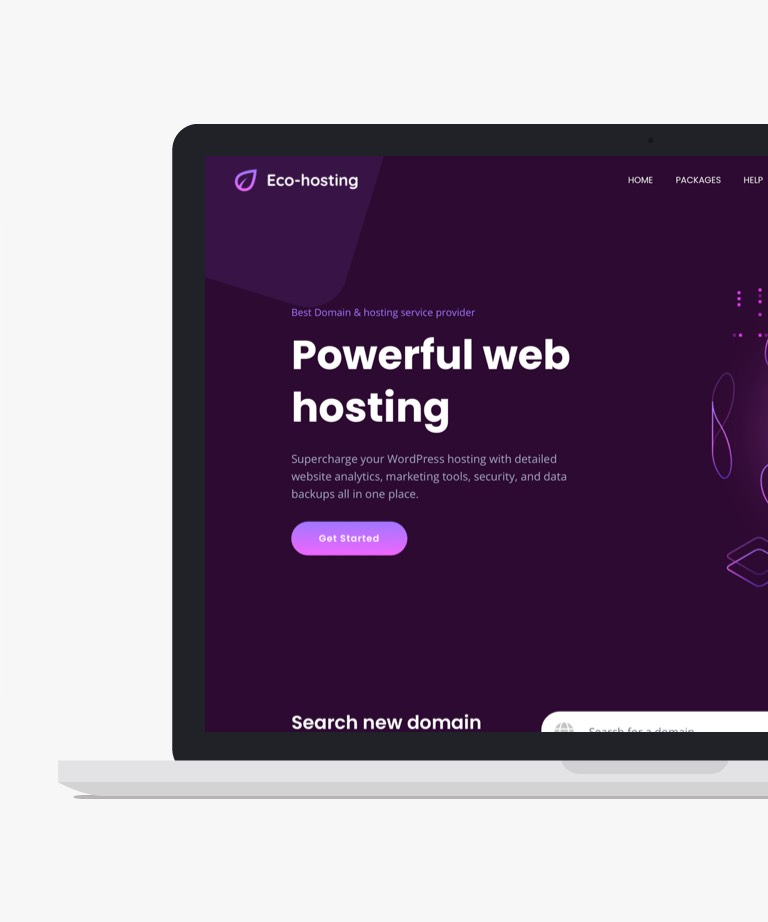
Download
EcoHosting is a contemporary and outstanding free Bootstrap template tailor-made for web hosting websites. If you're launching a hosting service and need a starting point for your website, EcoHosting is here to assist you. This theme arrives with a treasure trove of unique features, ready to kickstart your web hosting presentation. It offers a pre-made design and a generous array of amenities, making it easy for anyone to create a swift and efficient web hosting showcase. As a bonus, it's highly responsive, well-optimized, and seamlessly compatible with screens of all sizes. You can either use it as a blueprint or put it to work in crafting a fully functional website. EcoHosting boasts a range of top-notch features, including a sticky top navigation bar, a user-friendly drop-down menu, pricing plans, a convenient back-to-top button, a detailed FAQ section, a dynamic testimonials carousel, a newsletter subscription form, and much more. So why wait? Waste no more time, download this exciting web template, and commence building your impressive online presence.
-
Free Bootstrap templates
-
Free CSS templates

Download
Sportfit emerges as a contemporary and sleek fitness website template, boasting a captivating dark aesthetic and an exquisite design. Tailored to meet the needs of fitness clubs, Sportfit comes fully equipped with essential tools to streamline operations. From a comprehensive course list to a timetable grid for classes, Sportfit ensures a seamless user experience. As a free Bootstrap 4 HTML5 fitness website template, Sportfit prioritizes responsiveness and versatility, offering a multi-page layout that adapts flawlessly to various screen sizes and devices. Packed with tech-savvy features such as a dynamic hero header, sticky navigation, call-to-action buttons, and a newsletter subscription widget, Sportfit provides everything needed to engage and captivate visitors. With 5 UI elements included on the elements page and a dedicated blog page, Sportfit empowers you to create a dynamic and informative fitness website that maximizes its potential. Harness the power of Sportfit to elevate your fitness club's online presence and unlock its full capabilities.
-
Free Bootstrap templates
-
Free CSS templates

Download
Orange is a versatile and responsive free HTML CSS template designed specifically for professionals and freelancers. Whether you have a small business or a large enterprise, Orange is an ideal choice for creating your website. With its advanced features, Orange offers a seamless user experience. It includes integration with Google Maps, allowing you to easily display your location or showcase your business coverage. The smooth animations incorporated into the template enhance the visual appeal and engage your visitors. On mobile devices, Orange provides an off-canvas menu, ensuring a smooth and intuitive navigation experience. Built on the Bootstrap framework, Orange is fully responsive and retina-ready, guaranteeing that your website looks stunning on all screen sizes and resolutions. Its clean and modern design, coupled with the flexibility to customize various elements, empowers you to create a professional and visually appealing online presence.
-
Free Bootstrap templates
-
Free CSS templates
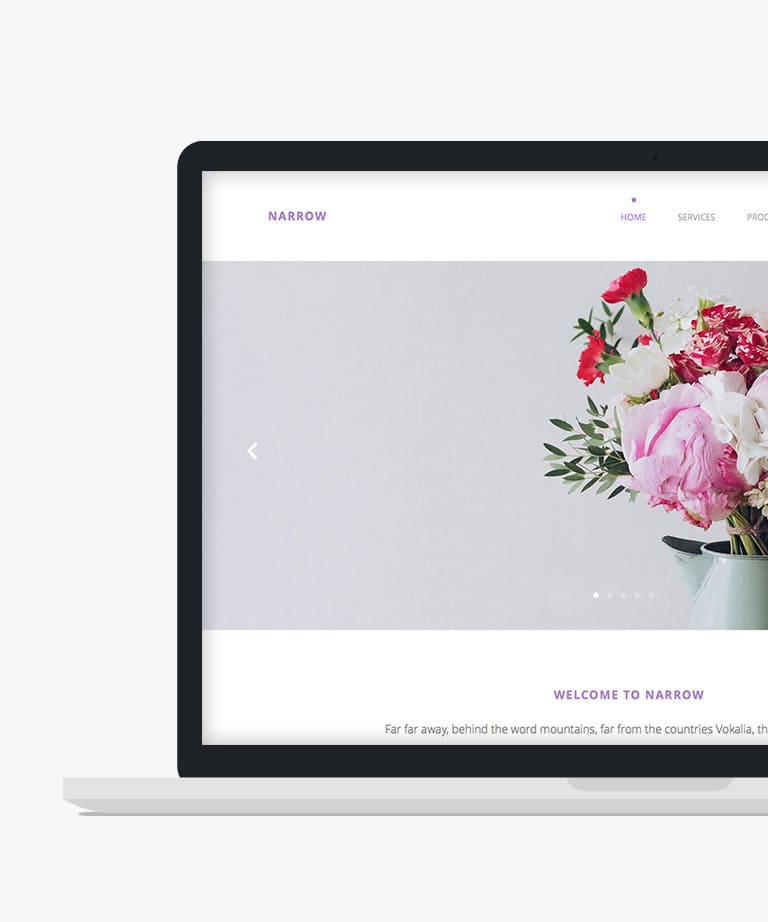
Download
Introducing Narrow, a versatile and free responsive HTML5 template designed to suit various purposes. Built on the Bootstrap 3 framework, Narrow offers a seamless and responsive experience across different devices. With its clean and modern design, Narrow is the perfect choice for any type of business website. It includes features like parallax scrolling and CSS animations, adding a touch of interactivity and visual appeal to your website. Utilizing the latest HTML5 and CSS3 technologies, this template ensures a smooth and efficient browsing experience. Its responsive layout guarantees that your website will look great on all devices, whether it's a desktop computer, tablet, or mobile phone. Whether you're a small business owner or a creative professional, Narrow provides a solid foundation for building your online presence. Customize and adapt this template to showcase your products, services, or portfolio in a professional and visually captivating manner.
-
Free Bootstrap templates
-
Free CSS templates

Download
If you're searching for a renewable energy website template, consider Solartec as your top choice. This template is built on Bootstrap 5 and features a sleek and modern design that is both minimalistic and user-friendly. With Solartec, you'll have access to 10 HTML pages, a sticky navigation bar, a responsive hero header, breadcrumbs, a burger menu, a back-to-top button, fun fact counters, geolocation, and other essential user interfaces like newsletter subscription form UI, contact form UI, and quotation form UI. Solartec is a free and accessible template that is developed using Bootstrap 5, HTML5, and CSS3. Thanks to the use of HTML5 and CSS3, this template has clean and readable codes that help it rank higher in SEO tests. Additionally, it has fewer cross-browser bugs and CSS compatibility issues, ensuring complete responsiveness on all major browsers. The great Bootstrap grids also make this template compatible with any device and screen size, making it an excellent choice for creating a renewable energy website template.
-
Free Bootstrap templates
-
Free CSS templates

Download
Looking for a sleek and modern website template that is both versatile and easy to use? Look no further than Kreative. This fully responsive multipurpose HTML5 CSS template is built with the latest HTML5 and CSS3 technology, ensuring that your website looks great on all devices. Designed with flexibility in mind, Kreative template can be used for a wide range of purposes, from agency and portfolio sites to landing pages, small business websites, and freelancer sites. With its clean and intuitive design, you can easily customize this template to suit your specific needs and preferences. If you're looking for a professional and polished website template that is both easy to use and highly adaptable, be sure to check out Kreative today!
-
Free CSS templates
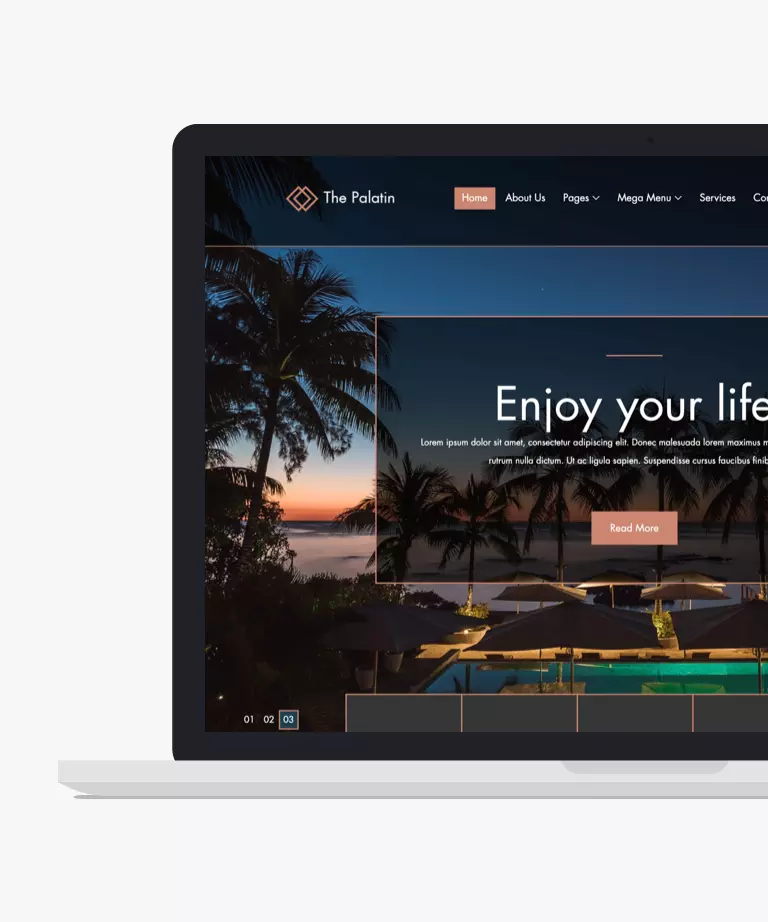
Download
Palatin presents a free Bootstrap 4 HTML5 hotel booking website template ideal for hotels, resorts, travel agencies, and various accommodation businesses. With its clean and straightforward design, Palatin offers an informative and efficient site layout. It boasts a multi-page structure and responsive design, ensuring compatibility across all modern devices and browsers. Featuring easy-to-understand and well-structured codes, Palatin facilitates smooth customization to meet your specific needs. It comes equipped with modern features like a booking form, mega menu, hover effects, Google Maps integration, and a functional contact form. With The Palatin, crafting an enticing project is both seamless and enjoyable!
-
Free Bootstrap templates
-
Free CSS templates
-
Free Travel templates

Download
Utilize this free, clean HTML and CSS template to effortlessly create a website that fosters the growth of your startup. Its intelligent design and exceptional layout make it a must-have addition to your toolkit. Notable features include a YouTube pop-up video and a sticky burger menu that collapses on click, adding to its allure. The well-structured sections are neatly organized, offering great benefits for various types of business websites. With proper customization, building a modern site is a quick task. Additionally, the multi-page setup provides several ready-to-use pages for seamless integration into your project.
-
Free Bootstrap templates
-
Free Clean templates
-
Free CSS templates
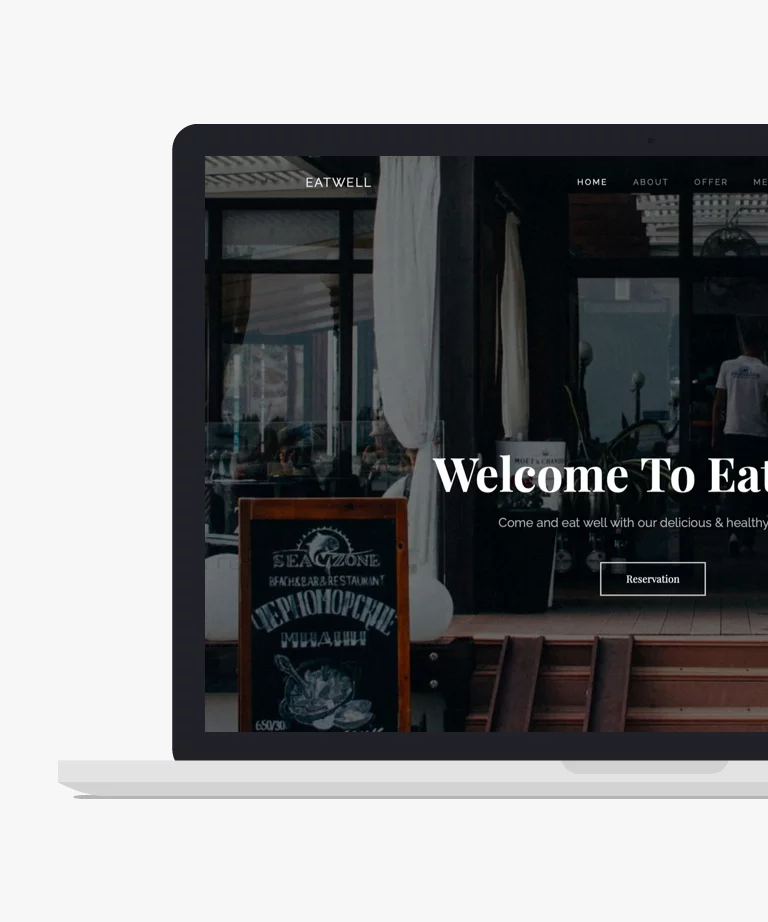
Download
Elevate your business with the help of this free, responsive restaurant HTML and CSS template: Eatwell. Featuring a one-page layout, Eatwell provides a comprehensive set of features to enhance the visual appeal of your site. Everything you need to showcase your restaurant's ambiance and delectable dishes is at your fingertips. The template begins with a sticky navigation and concludes with a detailed footer. Each section is meticulously organized, allowing you to effortlessly display relevant information about your restaurant. From a filterable menu to a lightbox gallery, contact information to a blog section, Eatwell offers a seamless and efficient solution for your restaurant's online presence.
-
Free Bootstrap templates
-
Free CSS templates
-
Free Food & Restaurant templates
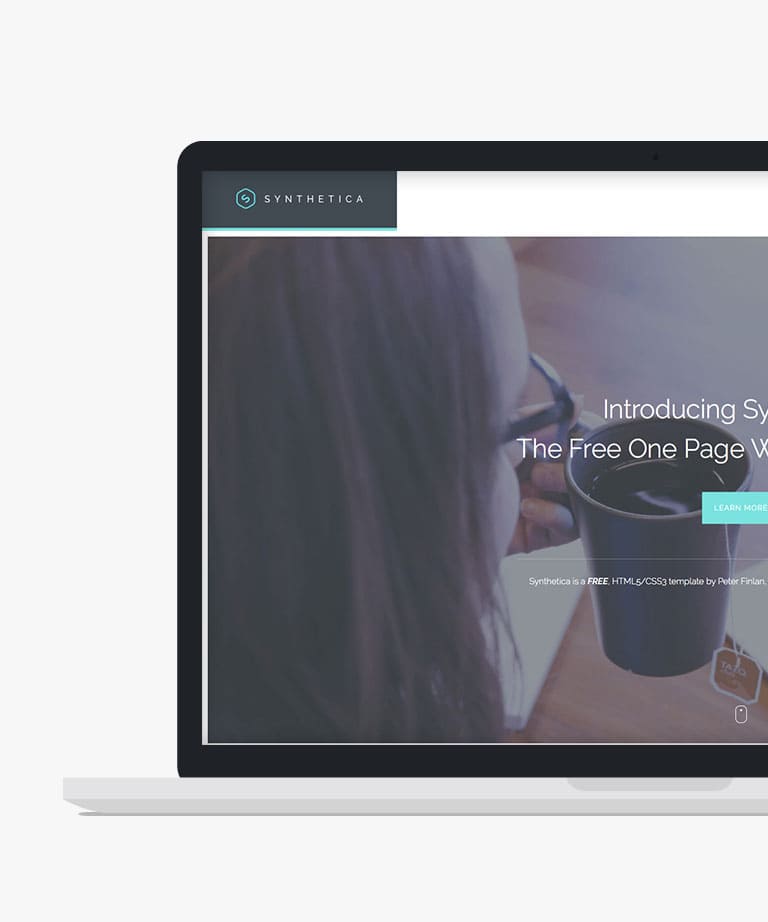
Download
Codrops' Synthetica multipurpose bootstrap template is a remarkable creation that can captivate visitors from their very first visit. Its polished graphical user interface is loaded with features that address valuable customers' unspoken questions and exponentially boost conversions. The template provides seamless navigation to showcase your services through subtle and striking sections, such as freebies, articles, and portfolio items. These sections offer users precise details of your sellable expertise and capacity.
-
Free Bootstrap templates
-
Free CSS templates
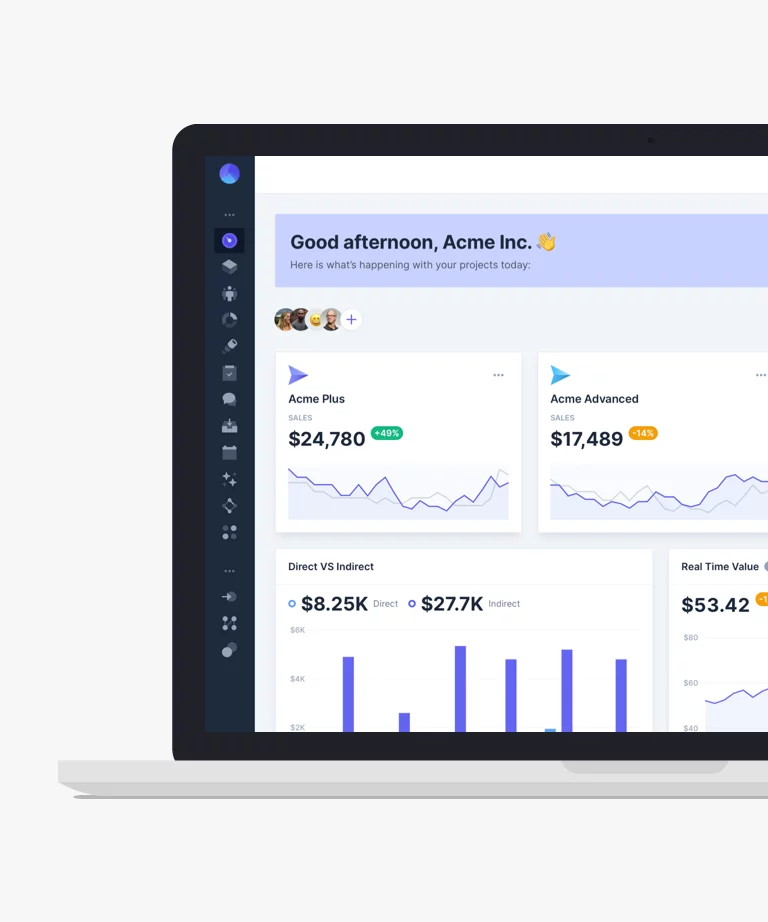
Download
Mosaic Lite offers a responsive and versatile dashboard template, designed using Tailwind CSS, and coded in React. With its collection of pre-coded charts and widgets using Chart.js 3, it serves as an ideal starting point for those looking to create user interfaces for a diverse range of applications, including SaaS products, administrative dashboards, and modern web apps. Its flexibility and robust features make it a valuable asset for developers and designers alike.
-
Free CSS templates
-
Free Dashboard templates
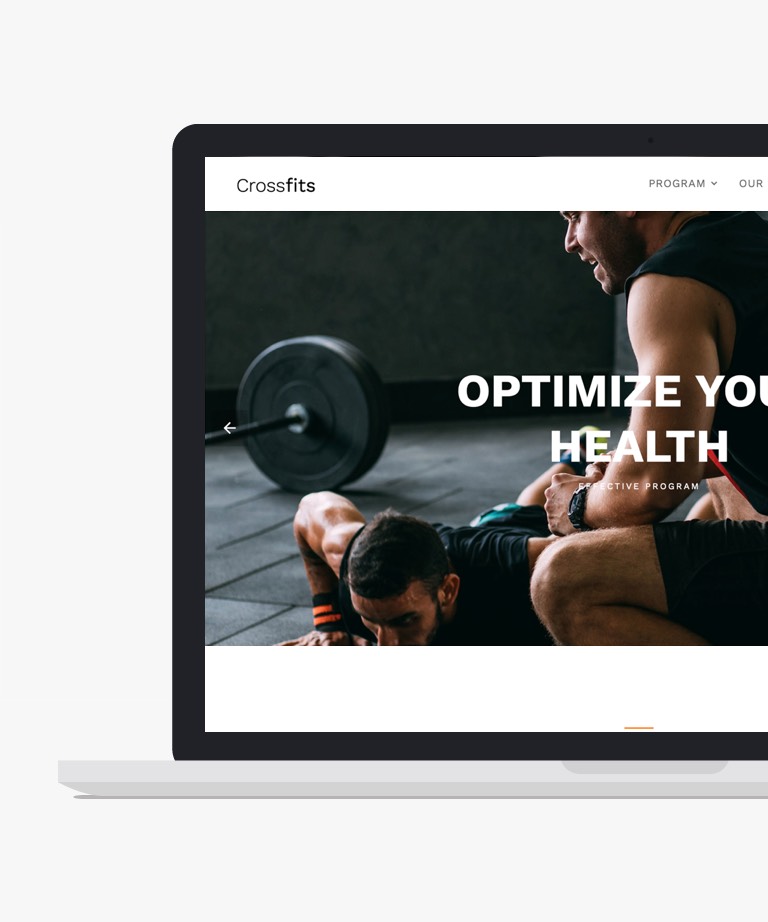
Download
CrossFits website template for CrossFit is built on Bootstrap and it is free to use. This responsive multi-page template has a clean and minimalist design with a full-screen fixed background image and hero header. The hero image also features a parallax effect, while the animated navigation bar includes a drop-down menu. In addition to these features, CrossFits also includes a range of other functionalities, such as a multi-level menu, hover effects, a features section, and testimonials. The template is retina and mobile-ready, ensuring high-quality visuals and compatibility with any screen size. Its dynamic and well-organized code structure is also beneficial for ease of creation.
-
Free Bootstrap templates
-
Free CSS templates

Download
Hikers presents itself as a complimentary, responsive travel blog website template, skillfully crafted using HTML5 and the Bootstrap 4 framework. Featuring a multi-page layout, this theme exudes simplicity and cleanliness in its design. Adding to its allure is a timeless slider positioned atop the header, enhancing its visual appeal. This free responsive travel blog website template, Hikers, boasts a collection of modern and impactful features and assets. From the classic slider to the intuitive drop-down menu and the user-friendly newsletter form UI, Hikers offers a seamless browsing experience. Additionally, footer widgets are included to enhance site navigation and engagement. With a well-structured code provided within the package, Hikers guides you through the development process, ensuring ease of customization and implementation. Harness the potential of Hikers to create an exceptional travel blog site and embark on a journey of digital storytelling.
-
Free Blog templates
-
Free Bootstrap templates
-
Free CSS templates
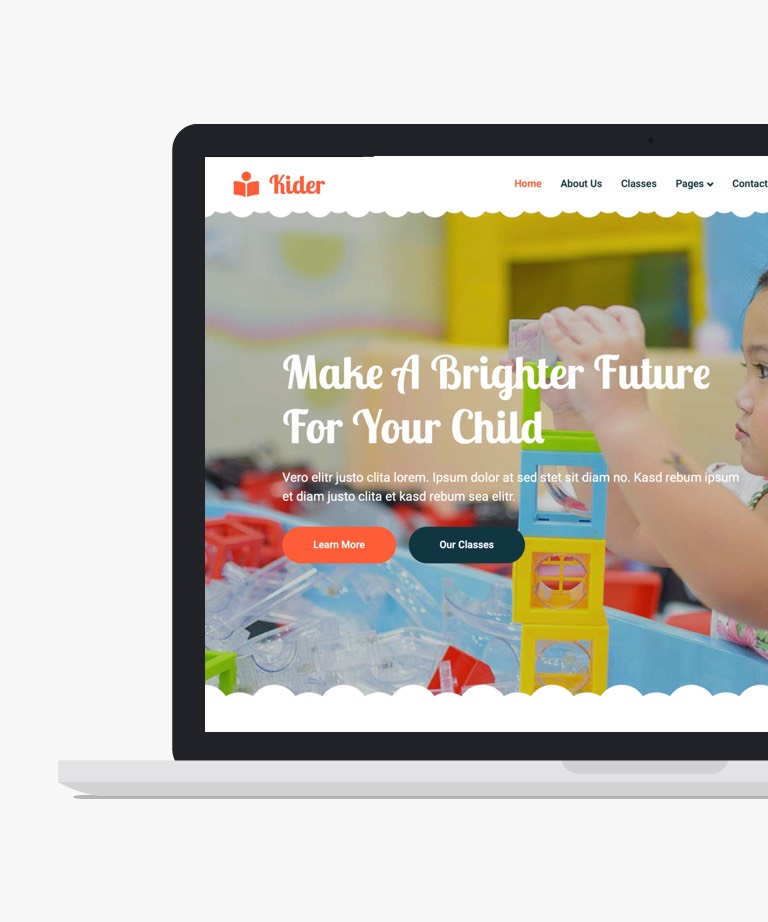
Download
Kider is an outstanding and innovative free website template designed specifically for preschool and educational purposes. The template includes a vast range of pre-made web components, making it an easy-to-use and convenient solution for creating your own educational website. It is an excellent choice for a variety of educational institutions such as kids care centers, primary schools, elementary schools, junior high schools, and colleges. Kider's responsive design is perfect for desktops, laptops, tablets, mobile phones, and other devices, ensuring a smooth user experience. With a colorful and engaging layout, this free preschool website template offers a wide variety of customizing options and attractive features. This template is built with the latest web technologies, including HTML5, CSS3, and Bootstrap v5 framework, providing flexibility and ease of use. You can create an exceptional educational website and personalize its components without requiring any advanced coding knowledge. Kider also includes 10+ pre-designed HTML5 demo pages for Home, About, Classes, Facilities, Teachers, Call to Action, Appointment, Testimonial, 404 Error, and Contact page. You can showcase your school's academic systems, courses, faculty, facilities, and activities through these pages. With Kider, building a stunning and functional educational website has never been easier.
-
Free Bootstrap templates
-
Free CSS templates
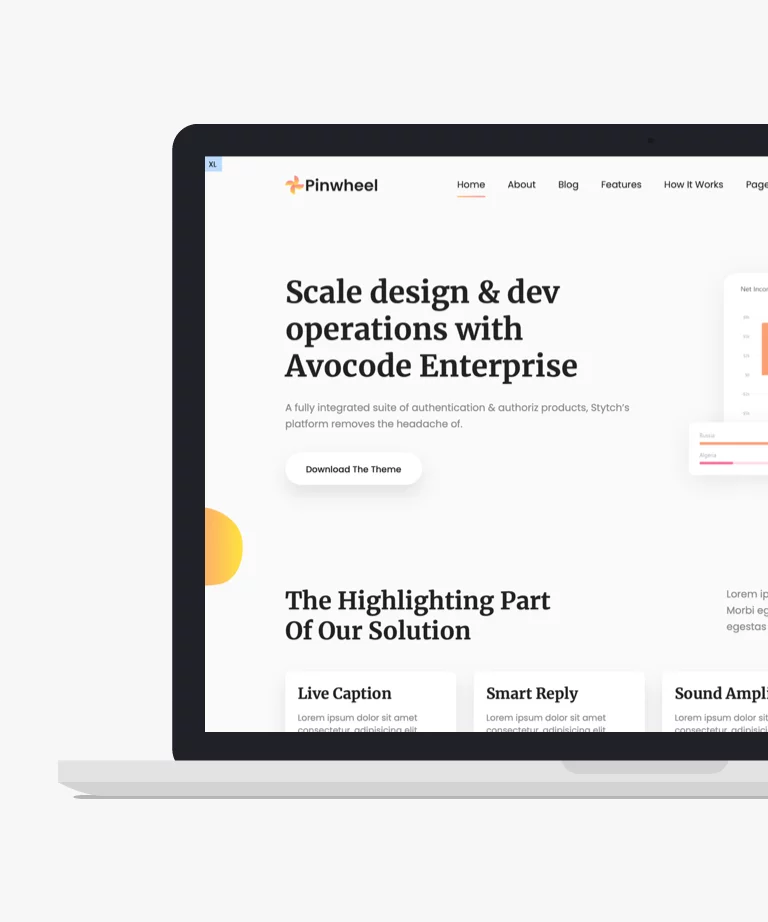
Download
PinWheel, a free CSS template, caters to business and corporate websites. Crafted with Tailwind CSS, it ensures seamless navigation and user-friendly interfaces for enhanced user experience. Responsive UI components, including a hero section with call-to-action buttons, video player, slider, top navigation with dropdowns, breadcrumbs, fun fact counters, on-hover effects, tabbed contents, and a beautifully warm gradient, adorn this multipage theme. Its styling remains responsive and compatible across various browsers. This Tailwind CSS-powered template streamlines CSS styling, expediting customization without compromising control over design elements. It ensures a secure website and expedites the development process. With PinWheel, experience the freedom of creating and designing hassle-free.
-
Free CSS templates

Download
Meet Hesed, a beautifully designed web canvas tailored for churches and similar organizations. It's a free responsive HTML5 CSS website template equipped with all the latest features and pages essential for a church's online presence. Notably, it boasts a clean and minimal aesthetic, ensuring pixel-perfect display on all devices. Hesed comes fully loaded with cutting-edge options, including a parallax background effect, attention-grabbing hero header, a compelling call-to-action button, convenient back-to-top functionality, and a sleek CSS3 preloader. It incorporates a simple, flexible, and well-commented code within the package, making customization a breeze for you. Embark on your web journey with Hesed and create a stunning church website effortlessly.
-
Free CSS templates

Download
Module is a versatile free HTML CSS template based on Bootstrap, offering four unique sub-pages to cater to various website needs. This Multi-Purpose HTML template is well-suited for a wide range of projects. Module template stands out with its sticky main menu, enhancing user navigation, while the smooth animations and clean layout contribute to an overall polished look. Developed using modern web technologies such as HTML5, CSS3, and jQuery, Module ensures a responsive and dynamic user experience. Whether you're building a corporate website, a portfolio, or an online store, Module provides a solid foundation with its flexible design and comprehensive features. With its easy customization options and attention to detail, Module is a reliable choice for creating a visually appealing and functional website.
-
Free Bootstrap templates
-
Free CSS templates
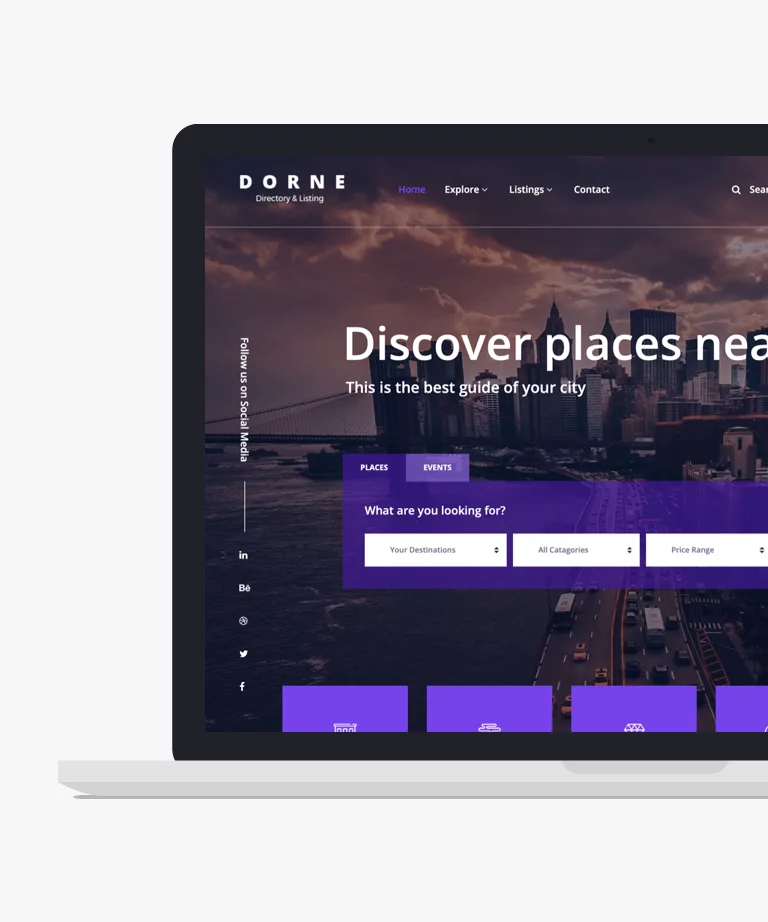
Download
Dorne is a complimentary Bootstrap travel directory template designed for those seeking to launch their website swiftly. Utilizing the latest Bootstrap framework, this template offers advanced capabilities for creating a directory and listing website with ease. It boasts a plethora of modern features including an advanced search option, a full-width search field, an appealing color scheme, and captivating animations. With well-organized sections, it's ready for deployment in any business with appropriate customization. Additionally, it provides other pre-designed pages that can seamlessly integrate into your upcoming project.
-
Free Bootstrap templates
-
Free CSS templates
-
Free Travel templates

Download
Boldiz, the free Bootstrap 5 website template from TemplatesJungle, is tailored for architecture ventures, serving contractors, construction companies, and related industries like carpentry and furniture design. Its robust, contemporary design defines its appeal, serving as an ideal platform for launching projects in contractor-related fields. With its meticulously crafted sections, elements, buttons, and layouts, Boldiz stands as a comprehensive resource for website development, providing all these features completely free of charge. Whether it's for showcasing portfolios or initiating a professional web presence, this template offers an accessible starting point, promising a polished and professional output.
-
Free Architect templates
-
Free Bootstrap templates
-
Free CSS templates

Download
Dtox is an exceptional choice for startups or individuals venturing solo. This template is a brilliant fit for SaaS firms and software companies, delivering a unique, intelligent, and straightforward website solution. With its multi-concept approach, Dtox offers diverse possibilities, creating an ideal online space for your growing business. This single-page design consolidates all necessary information, eliminating the need for navigating between multiple pages. Built on Bootstrap, Dtox ensures complete responsiveness and flexibility, seamlessly adapting to all devices and browsers. Its standout features include gradient colors, background images, a subscription form, captivating hover effects, and CSS3 animations, adding allure to its crisp and clear appearance.
-
Free Bootstrap templates
-
Free CSS templates
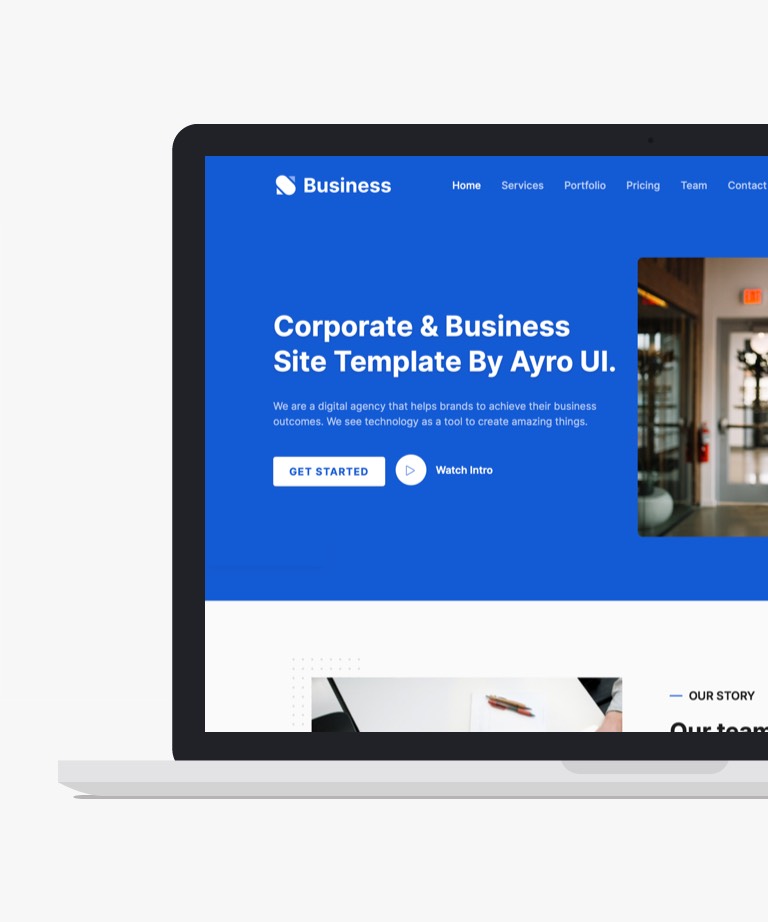
Download
Ayro Business is a Bootstrap HTML template that is designed specifically for businesses and agencies. It comes with a variety of essential sections and elements such as a hero area, services, about, portfolio, pricing, team, testimonial, blog, contact, and more. One of the benefits of Ayro Business is that it's based on Ayro UI components, which means you can get it for free with Ayro UI. However, you can also download this template separately from UIdeck if you prefer. Overall, Ayro Business appears to be a well-designed and comprehensive template that could be a good choice for your next website if you're looking for a professional and polished look.
-
Free Bootstrap templates
-
Free Business templates
-
Free CSS templates
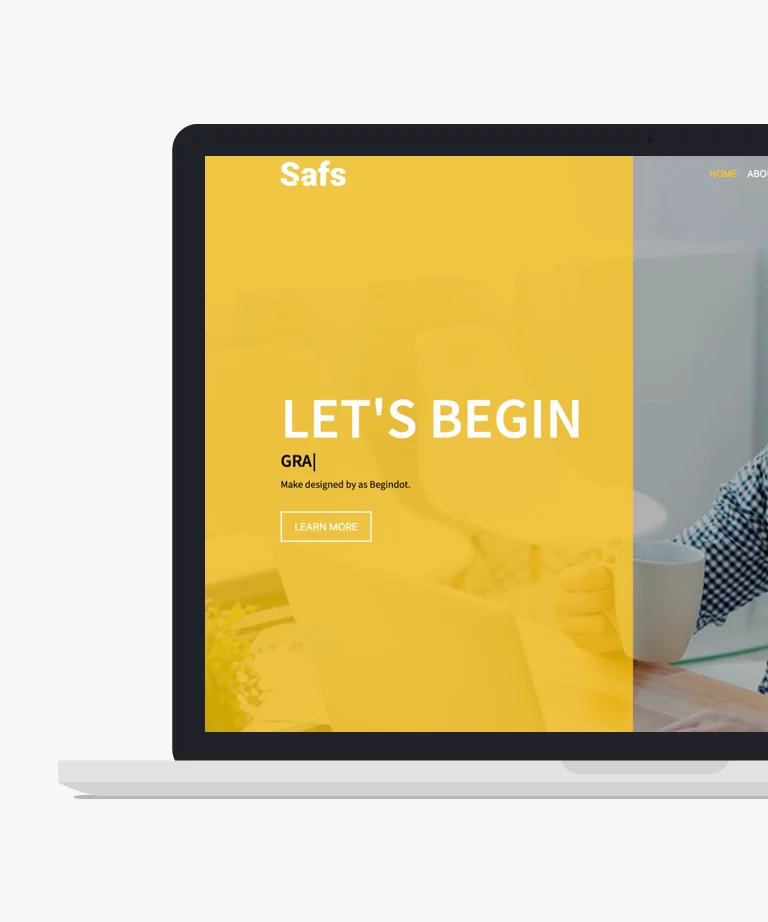
Download
Safs is a one-page, free Bootstrap HTML5, CSS template designed for personal portfolios, ideal for web developers, web designers, graphic designers, or creative agencies. Leveraging the Bootstrap 4 framework, Safs ensures responsiveness, and its well-commented code makes customization a seamless experience, much like cutting through butter with a knife. Packed with the latest features and assets, including a hero header, typewriter text, skill bars, testimonial carousel, and fun fact counters, Safs provides a comprehensive toolkit. Additionally, it offers a working contact form and a single blog page as ready-made assets, saving valuable time. The beautifully animated portfolio grid with modal view adds an extra layer of sophistication to showcase your work. Start building your personal portfolio website with Safs.
-
Free Bootstrap templates
-
Free CSS templates
-
Free One page templates
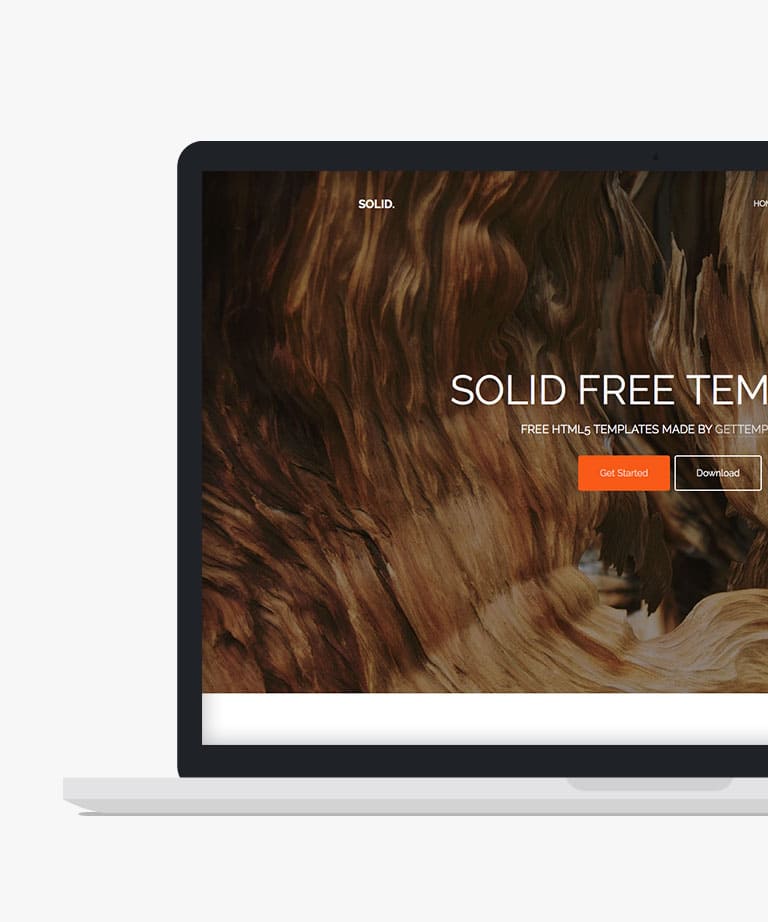
Download
Solid Dot is a free and fully responsive multi-purpose HTML CSS website template that has been designed using Bootstrap framework. It offers a wide range of features including a 1-level drop-down menu, smooth animation that appears as you scroll through the website, tabbed content, and much more. With its versatile design, Solid Dot template is perfect for building any type of website, be it a business website, a personal blog, or an e-commerce website. This template is fully customizable, so you can easily tailor it to your specific needs and preferences. Plus, it is optimized for performance and is compatible with all major browsers, ensuring a seamless user experience across devices.
-
Free Bootstrap templates
-
Free CSS templates
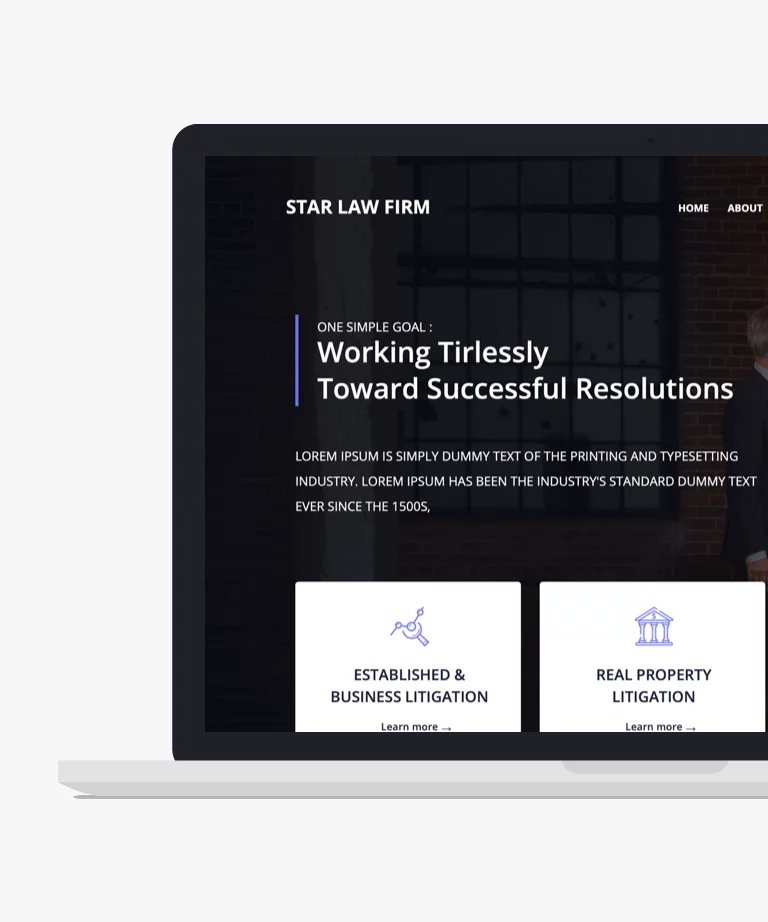
Download
Star Law is a responsive website template designed for law firms, featuring slick animations and smooth scrolling. Its structure is tailored for law agencies and similar organizations, but with customization, it can be applied to any website niche. The template includes social media icons, custom icons, an elaborate footer, and other user-friendly features. Additionally, it comes with animated testimonials, features and client sections, and various engaging elements. With multiple ready pages and under-the-hood options, this free website template allows you to beautify your website and give it an artistic flair.
-
Free Bootstrap templates
-
Free CSS templates
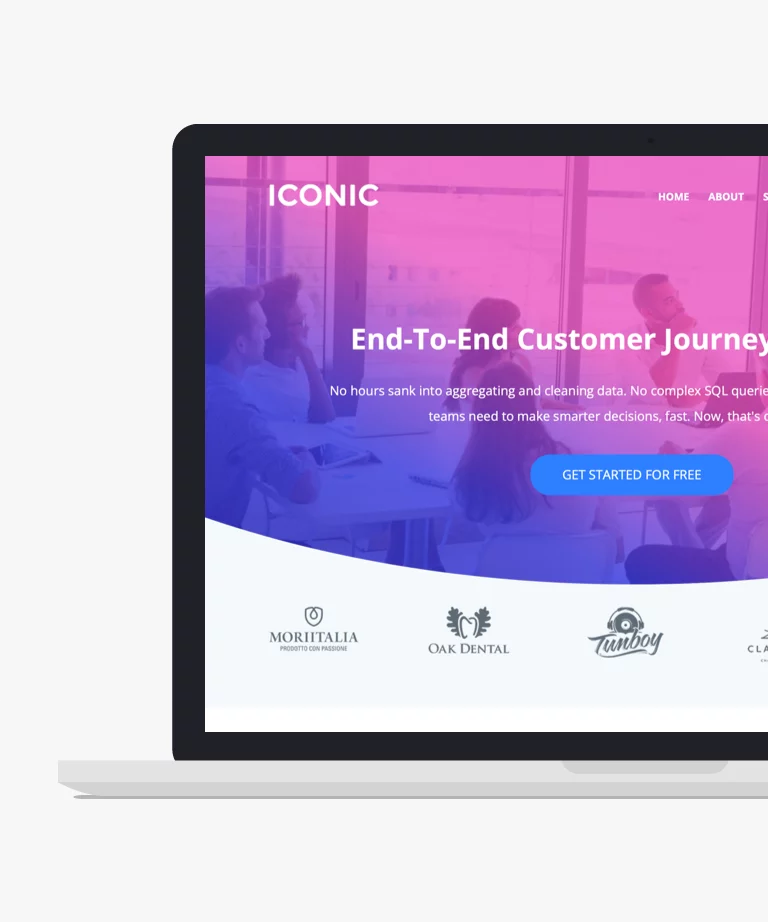
Download
Iconic free HTML5 CSS template boasts a simple design that is easy on the user's eye. With multiple ready pages, creating a full-fledged website is a straightforward process. Additionally, the template features smooth scrolling and attractive on-hover effects, making Iconic a symbol of superb UI. The inclusion of special business icons and a video section further enhances the template's ability to help you establish a professional appearance.
-
Free Bootstrap templates
-
Free CSS templates
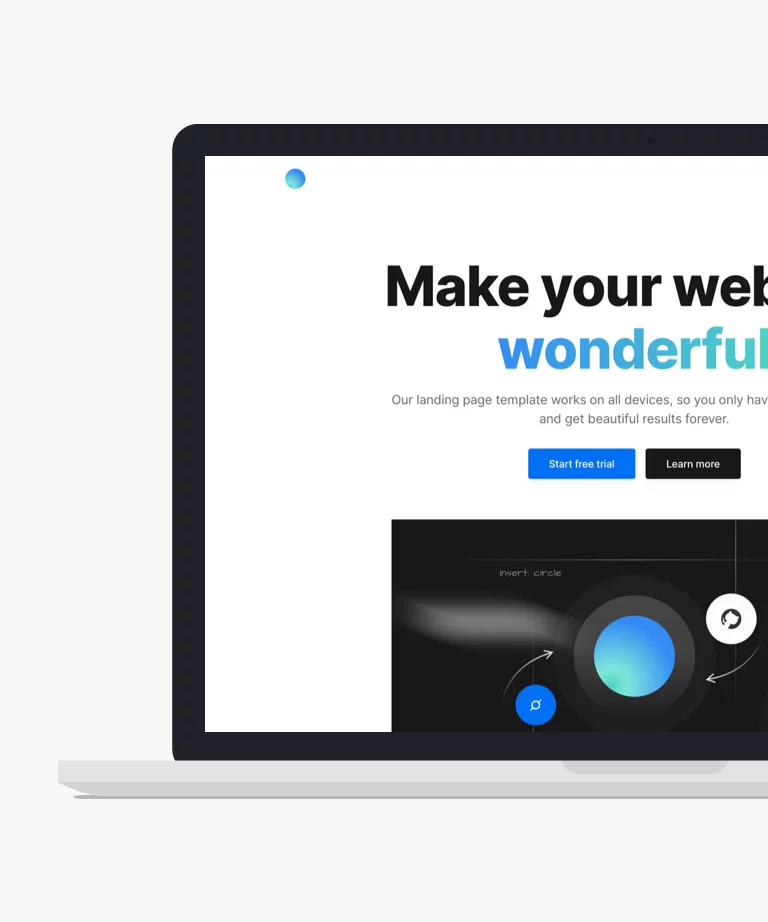
Download
Simple Light is a user-friendly and versatile landing page template that leverages the power of Tailwind CSS and React/Next.js. With its comprehensive set of components and seamless integration, Simple Light empowers developers to effortlessly create captivating landing pages for a wide range of applications, including SaaS products and online services. Whether you're a seasoned developer or just starting out, Simple Light provides the tools and flexibility you need to bring your projects to life with ease and efficiency.
-
Free CSS templates
-
Free Landing page templates
-
Free Simple templates
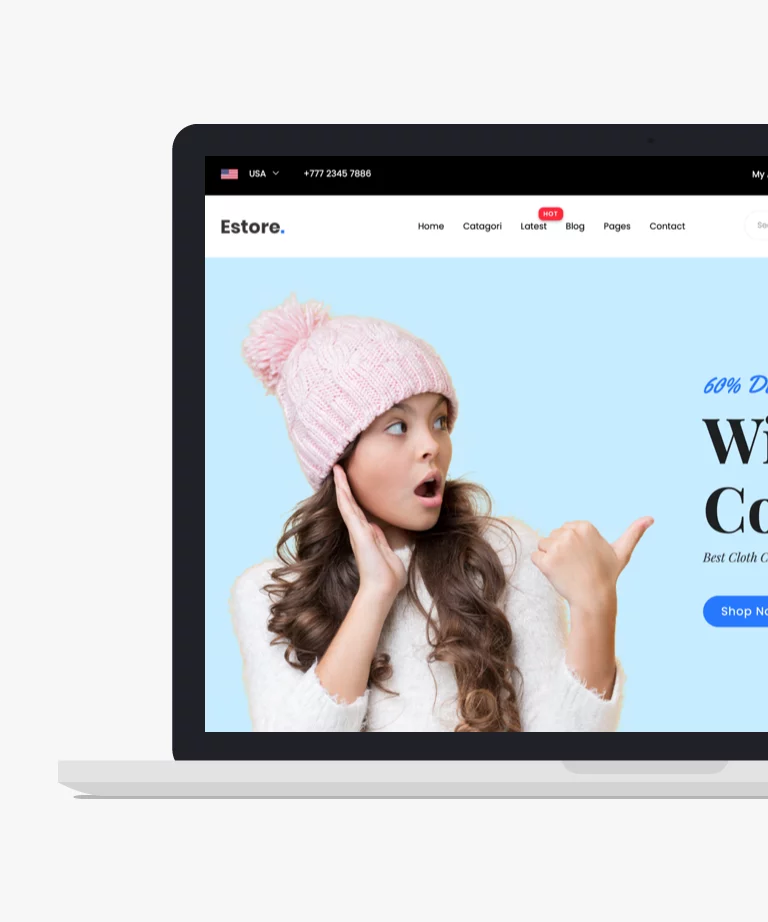
Download
eStore is a free Bootstrap HTML5 template tailor-made for creating striking ecommerce websites or online shops. Its elegant design is fully responsive and impeccably optimized for compatibility with all modern browsers. This template seamlessly adapts to any device, offering a consistent experience across various screen sizes while saving you valuable time with its plug-and-play usability. This feature-rich template boasts a range of functionalities such as a prominent hero header, sticky navigation, a convenient drop-down menu, engaging call-to-action buttons, search options, product grids, shopping cart integration, and more. Crafted with easily customizable code, eStore empowers effortless development without compromising time. Embrace eStore to elevate your project to a standout level.
-
Free Bootstrap templates
-
Free CSS templates
-
Free Ecommerce templates
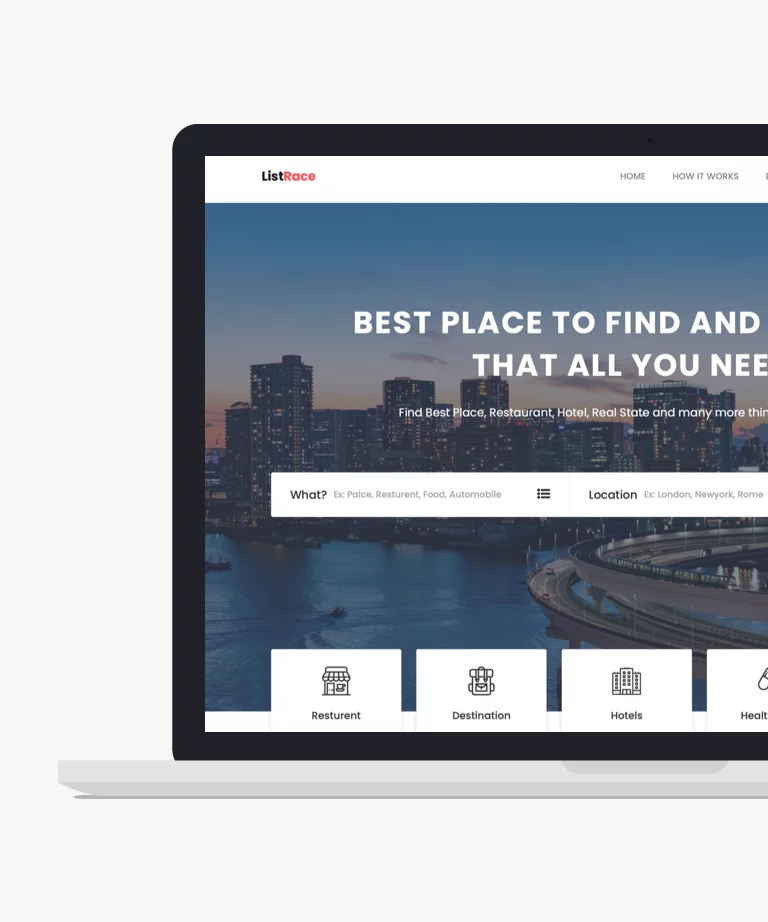
Download
Listrace presents a simple yet captivating one-page free Bootstrap HTML5, CSS template designed for directory listing websites. It's versatile enough to cater to various business types such as real estate, restaurants, hotels, and more. Built on the Bootstrap framework, Listrace incorporates essential directory elements like Google Maps and reviews. This exceptional directory listing template is not only feature-rich but also completely free. It boasts a multilingual, multi-currency UI, and its well-commented code makes customization a breeze. The package includes valuable assets like FontAwesome icons, JavaScript plugins, and demo images. Listrace offers animated hero headers, sticky navigation, carousels, and live statistics as some of its standout features. Elevate your project with Listrace and bring it to new heights online.
-
Free Bootstrap templates
-
Free CSS templates
-
Free One page templates

Download
Yogaflex is a free Bootstrap 4 HTML5 yoga website template tailored for yoga courses and training programs. Its minimal and clean design makes it suitable for representing any yoga training center online. Yogaflex offers beautifully presented course lists and schedules on single pages, along with a dedicated blog section. Additionally, it boasts a responsive design with a multi-page layout for enhanced accessibility. Packed with modern and innovative features, Yogaflex includes elements such as a hero header, drop-down menu, breadcrumbs, and sticky navigation to enhance user experience. The template also provides essential tools like a contact form and newsletter subscription form, all neatly packaged with intuitive and well-commented code for easy customization. Dive into Yogaflex and unlock its full potential for your yoga website!
-
Free Bootstrap templates
-
Free CSS templates

Download
Rango, a free HTML and CSS template, kicks off its impressive features with a full-width animated header slider. The sticky navigation remains fixed at the top during scrolling, enhancing user convenience. Additionally, a creatively styled search bar emerges upon a click next to the navigation. Notably, Rango boasts a unique scrolling approach, captivating users and encouraging prolonged engagement. Highlighting its exceptional features, the template includes a carousel slider for testimonials, offering a distinctive vertical slide. The package encompasses various pages, such as "About Us" for company information and "Services" for showcasing offerings. Built with Bootstrap 4, this free HTML template ensures a visually appealing experience across smartphones and various devices. Embracing minimalism, Rango maintains a well-organized structure throughout its design.
-
Free Bootstrap templates
-
Free CSS templates

Download
Top Gym is a free, fully responsive Bootstrap 4 HTML5 gym website template that boasts a stunning design optimized for all the latest browsers. With its eye-catching appearance, Top Gym ensures a seamless user experience across various devices, from smartphones to large desktops. This template comes packed with a plethora of cutting-edge features and assets to enhance your website. From a captivating hero header and full-screen slider to a modal YouTube player and call-to-action button, Top Gym offers all the necessary tools to create an engaging and dynamic website. Additionally, its intuitive and well-organized code structure simplifies customization, making it accessible even for beginners. Kickstart your project with Top Gym and create a top-notch website that leaves a lasting impression on your audience.
-
Free Bootstrap templates
-
Free CSS templates

Download
Introducing Invent, a free HTML template designed for IT, business, or corporate-related websites. With its clean and visually appealing design, Invent provides a professional look and feel to your online presence. Built on the Bootstrap 4 grid system, this template ensures that your website looks great on all devices, offering a seamless user experience. Invent comes with six pre-designed demo pages, allowing you to quickly kickstart your website development process. By leveraging these predesigned pages, you can save time and effort in building your website and focus on showcasing your content effectively. Whether you're a technology company, a business entity, or a corporate organization, Invent provides the perfect foundation for your online presence. Take advantage of this free template and create a stunning website that captures the essence of your brand and engages your audience.
-
Free Bootstrap templates
-
Free CSS templates

Download
Training Studio CSS template presents a contemporary and chic design for fitness websites, catering to gyms, fitness clubs, and yoga studios. This free template, crafted on the Bootstrap framework, boasts a striking dark aesthetic. Its single-page layout incorporates the latest features, including a template grid for class schedules. Additionally, its responsive design ensures compatibility with various browsers and devices. Ideal for businesses and startups in the fitness industry, Training Studio is a meticulously designed Bootstrap template with a clean layout, poised to leave a lasting impression on your audience.
-
Free Bootstrap templates
-
Free CSS templates

Download
Job Board, a free Bootstrap HTML5 job board template, presents a sleek platform for job postings, sporting an impeccable design adaptable to any device size. Its responsive nature ensures seamless functionality across screens. While it arrives ready to use, Job Board allows for easy modifications to suit specific preferences. Featuring a variety of handy components like hero headers, custom illustrations, a call-to-action button, sticky navigation, and dropdown menus, this template offers versatility. Moreover, it integrates a Google Map within the contact form for added convenience. Job Board empowers users to create attention-grabbing websites effortlessly. Its blend of functionality and visual appeal makes it an excellent choice for those seeking a polished job board website.
-
Free Bootstrap templates
-
Free CSS templates
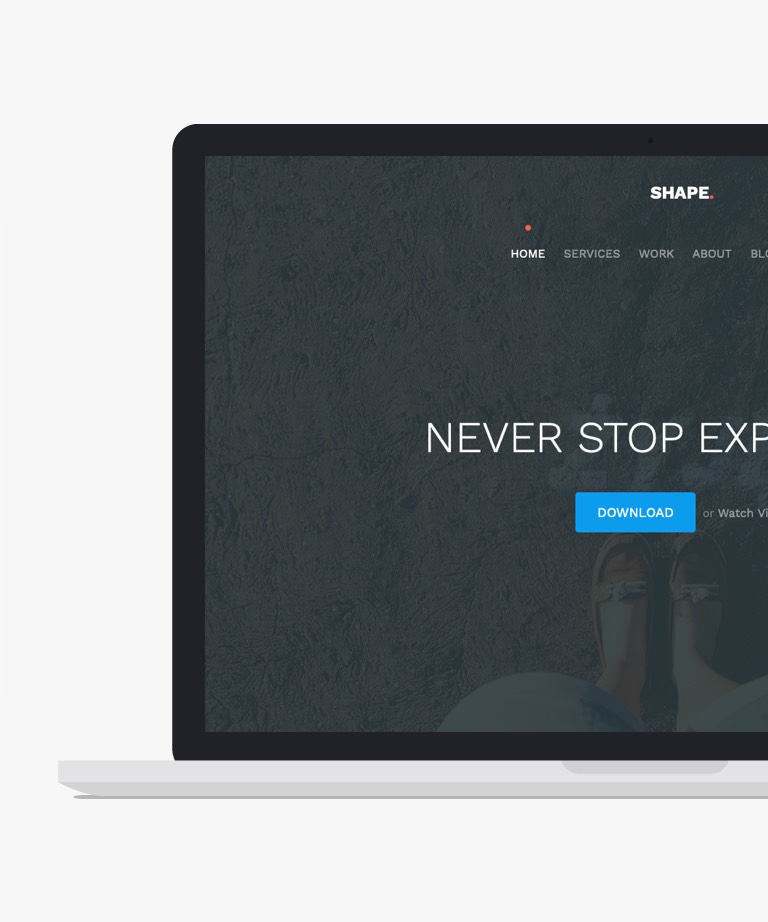
Download
Shape is a sleek and modern free HTML5 and CSS3 template that has been crafted with great attention to detail, leveraging the popular Bootstrap framework. It boasts a range of impressive features, including an off-canvas menu, project counter, a working contact form, retina-ready design, and more. With its elegant and professional design, Shape is the perfect choice for those looking to create a website for their business. Its responsiveness ensures that your website will look great on all devices, and its easy-to-customize code ensures that you can make it your own in no time.
-
Free Bootstrap templates
-
Free CSS templates
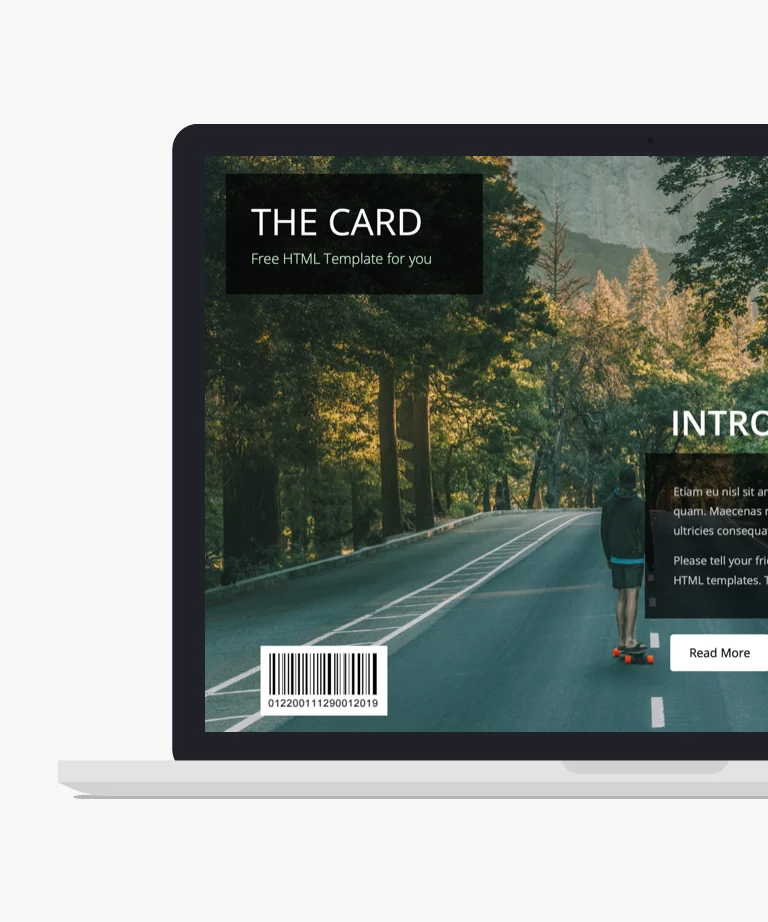
Download
While The Card is a free creative portfolio template, it generously offers ample freedom for personal projects or image galleries. Its unconventional layout, coupled with multiple backgrounds on each section accessible through menu items, provides a unique experience. Built on Bootstrap 4, this template seamlessly adapts to various screens, ensuring a consistent user experience. The work section serves as a captivating container for your gallery, featuring on-hover animations and a beautifully enumerated display.
-
Free Bootstrap templates
-
Free CSS templates
-
Free Portfolio templates

Download
Presenting Occupy: a stunning, contemporary, meticulously structured, and optimized multi-page finance website template, available for free and built on the Bootstrap 4 framework. Occupy is an invaluable resource brimming with remarkable features and assets, empowering you to craft an unparalleled website. With Occupy at your disposal, you have the tools to construct an unbeatable online presence.Furthermore, Occupy seamlessly integrates a fully functional PHP/Ajax contact page, complete with Google Maps integration, facilitating easy and effective communication. This free Bootstrap 4 HTML5 template not only offers exceptional features, but also guarantees full responsiveness, cross-browser compatibility, and exceptional performance. Alongside essential web components and internal sections, Occupy includes a captivating blog section. Embrace contemporary web trends with features like a dynamic hero header, a persistent sticky navigation bar, a user-friendly dropdown menu, engaging UI block elements, and more.
-
Free Bootstrap templates
-
Free CSS templates
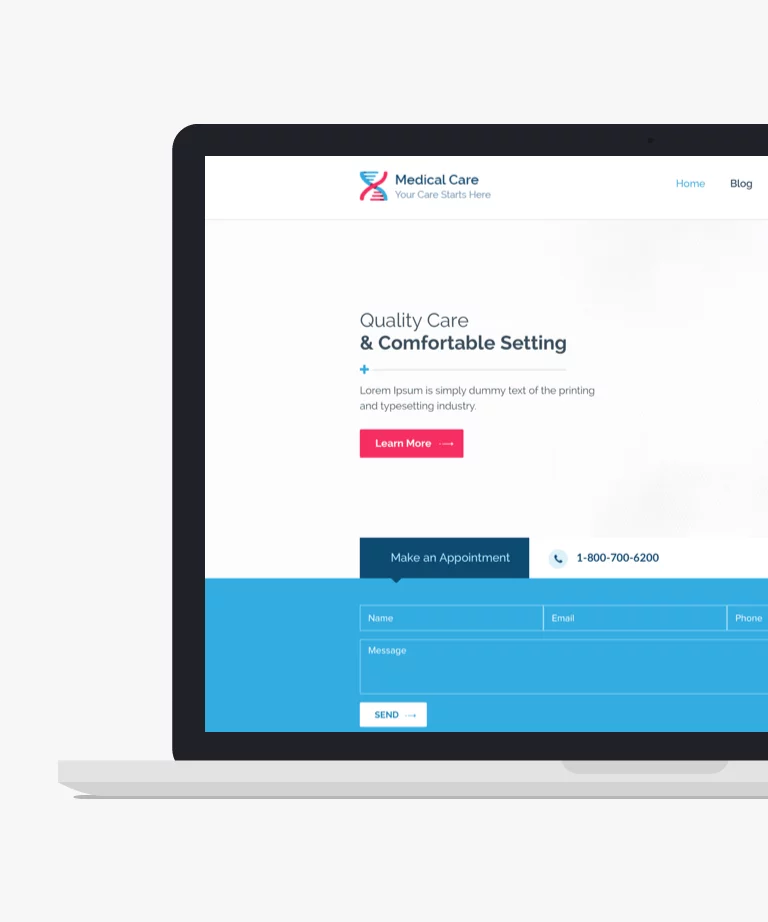
Download
MedicalCare is a robust free Bootstrap medical template, meticulously crafted with responsive design and semantic coding. Tailored for health and medical-related ventures, whether it's for a doctor, hospital, dentist, or physician, MedicalCare presents an optimal solution. Its easy customization further enhances its usability. Created on a responsive Bootstrap framework, MedicalCare is available for free download for both personal and commercial applications. However, the free version necessitates a backlink to BootstrapMart in the footer. For those seeking to eliminate this backlink, the pro version offers enhanced features and functionalities. Exploring the pro version might be beneficial for those seeking additional capabilities.
-
Free Bootstrap templates
-
Free CSS templates
-
Free Medical templates
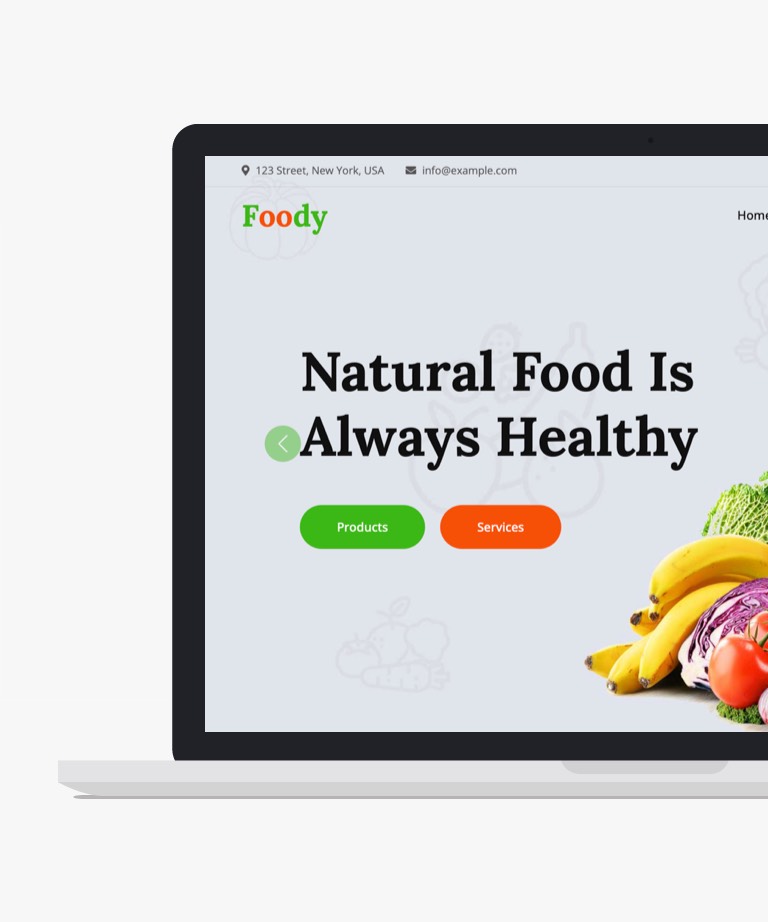
Download
Foody is a modern, clean, free organic food website template ideal for creating a responsive and impactful website. This template is perfect for all food-related websites, including agriculture, farmer, organic product, eco food, food retail, farm, fresh, modern cultivation, natural food, organic vegetable, organic food, fruits, organic fruits, organic life, organic shop, vegetable, and more. If you're looking for free HTML website templates, Foody is the right choice. This template is fully customizable and has many features and functions that save you time and effort. You can start your organic food business using Foody and achieve success. Foody is created with the latest web technologies like HTML5, CSS3, SASS, the latest JS, and Bootstrap v5 framework. The template is 100% responsive and mobile-friendly, working well on mobile devices, iPods, laptops, and desktop screens. It has an eye-catching clean design that includes many visual elements and effects. Foody, includes 8+ pre-defined HTML5 template pages, such as Home, About, Product, Blog, Feature, Testimonial, 404 Error, Contact page, etc., to help establish your online presence. You can customize these pages to create a website that fully suits your business. Foody is the best choice to launch your organic fruits and vegetable website quickly and efficiently.
-
Free Bootstrap templates
-
Free CSS templates
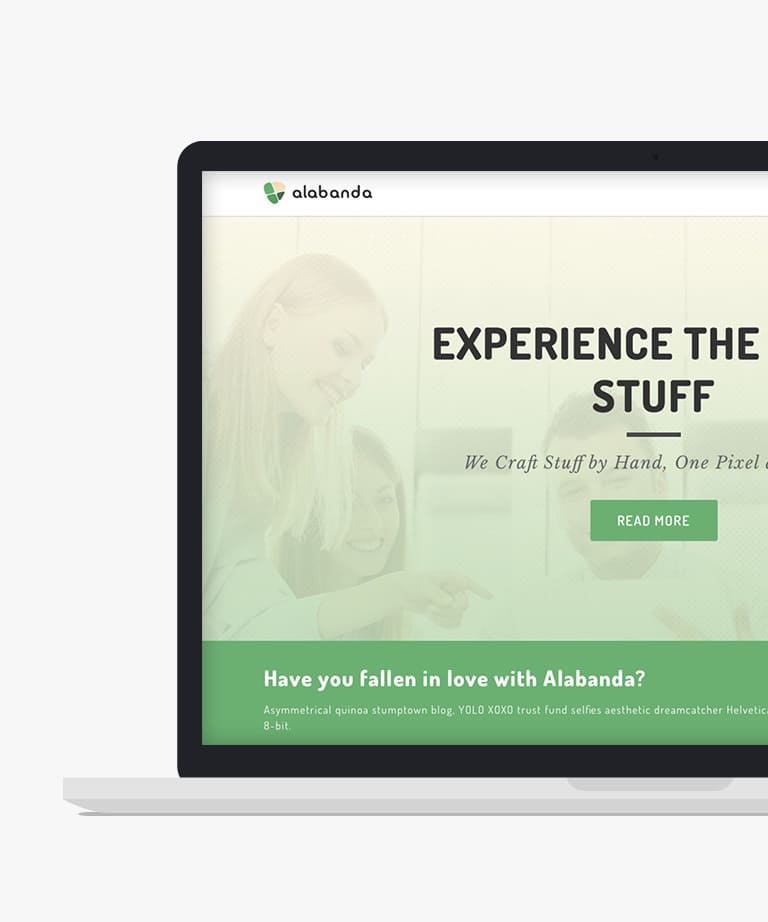
Download
Alabanda is a free multipurpose HTML5 and CSS website template with a clean and professional design that is ideal for professionals, freelancers, or creative studios. The template is fully responsive and retina-ready, ensuring that your website looks great on all devices and screen sizes. It comes with five pages: Home, About, Services, Portfolio, and Contact, making it easy to showcase your work and connect with potential clients. The code is well-organized and commented, allowing for easy customization. Alabanda is built with HTML5 and CSS3 and is compatible with all modern web browsers. The template is free to use and can be downloaded and customized to fit your specific needs. With its clean and professional design, Alabanda is an excellent choice for anyone looking to create a stylish and modern website.
-
Free CSS templates
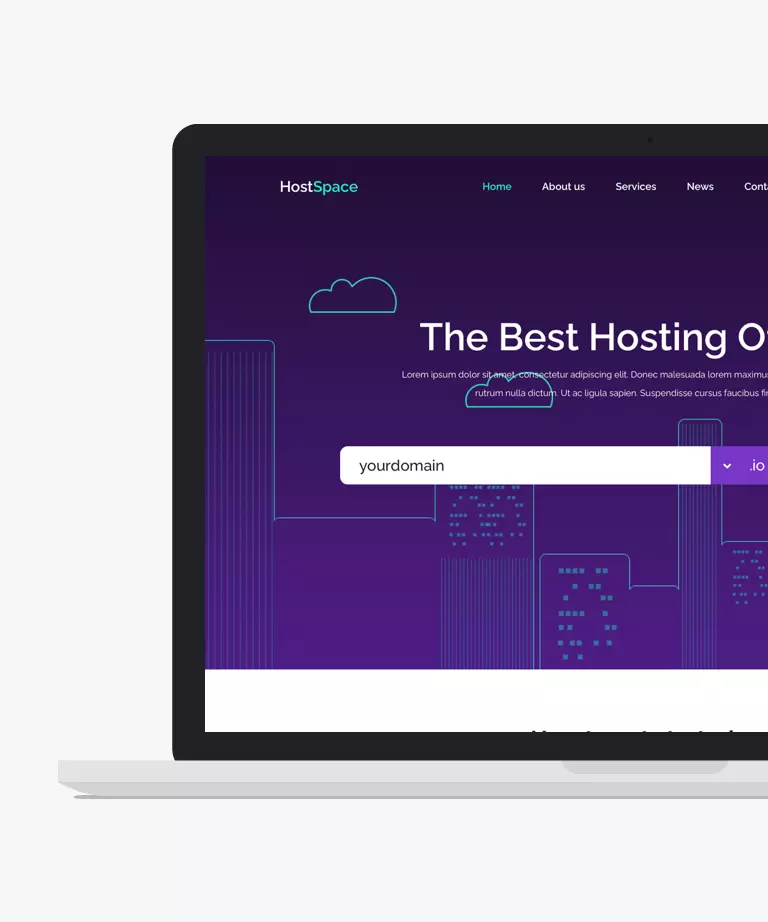
Download
Hostspace is a website template designed specifically for web hosting companies. If you need a layout for your hosting site, Hostspace could be an ideal choice. It's a free Bootstrap 4 HTML5 template, featuring a stylish and dynamic design with a responsive multi-page layout. In addition to its aesthetic appeal, Hostspace comes equipped with a range of stunning, cutting-edge features and assets. These include sticky navigation, animated banners, a domain search box, and parallax effects, among others. Furthermore, it offers a pricing table, modal video player, tabbed content, and more. With its commented and intuitive codes, Hostspace makes customization easy. So, unleash your creativity and build your hosting website with Hostspace!
-
Free Bootstrap templates
-
Free CSS templates
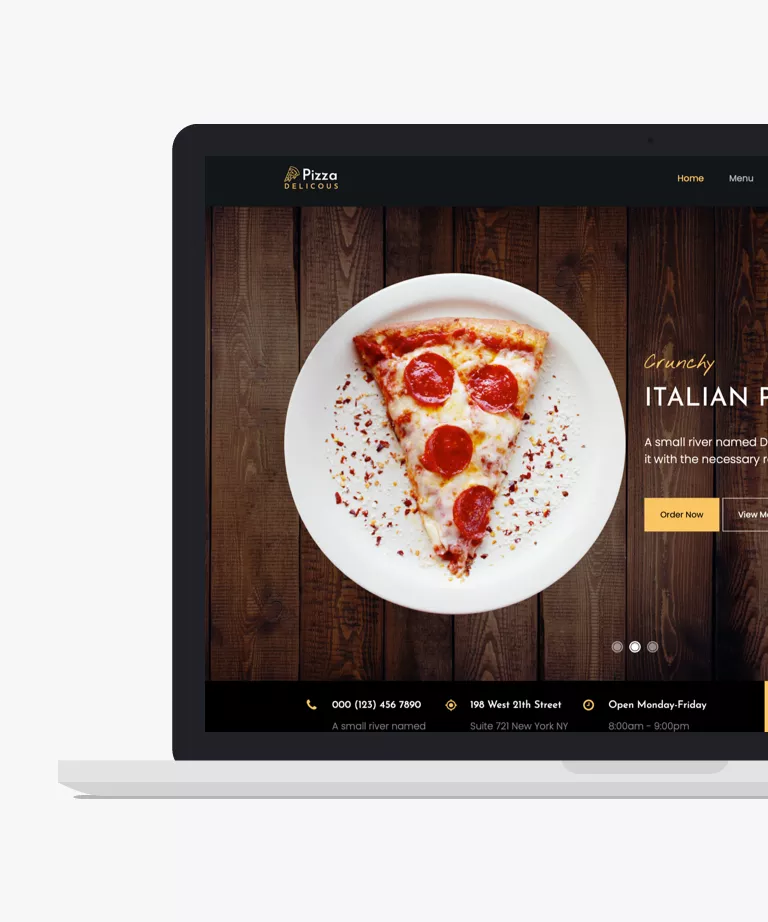
Download
Pizza is a dynamic free Bootstrap 4 HTML5 website template tailored for pizzerias, restaurants, bakeries, and other food-based businesses. Sporting a sleek dark aesthetic and a captivating full-screen slideshow, Pizza sets the stage for an immersive culinary experience. This template boasts a range of impressive features, including a filterable menu grid and a dedicated Blog section, allowing you to showcase your offerings and share your culinary insights with ease. Its eye-catching typography paired with parallax backgrounds adds a touch of sophistication to its design. Moreover, Pizza comes with a responsive multi-page layout, ensuring seamless accessibility across various devices. With additional functionalities such as Google Maps integration, fun fact counters, footer widgets, and sticky navigation, Pizza offers both style and substance.
-
Free Bootstrap templates
-
Free CSS templates
-
Free Food & Restaurant templates
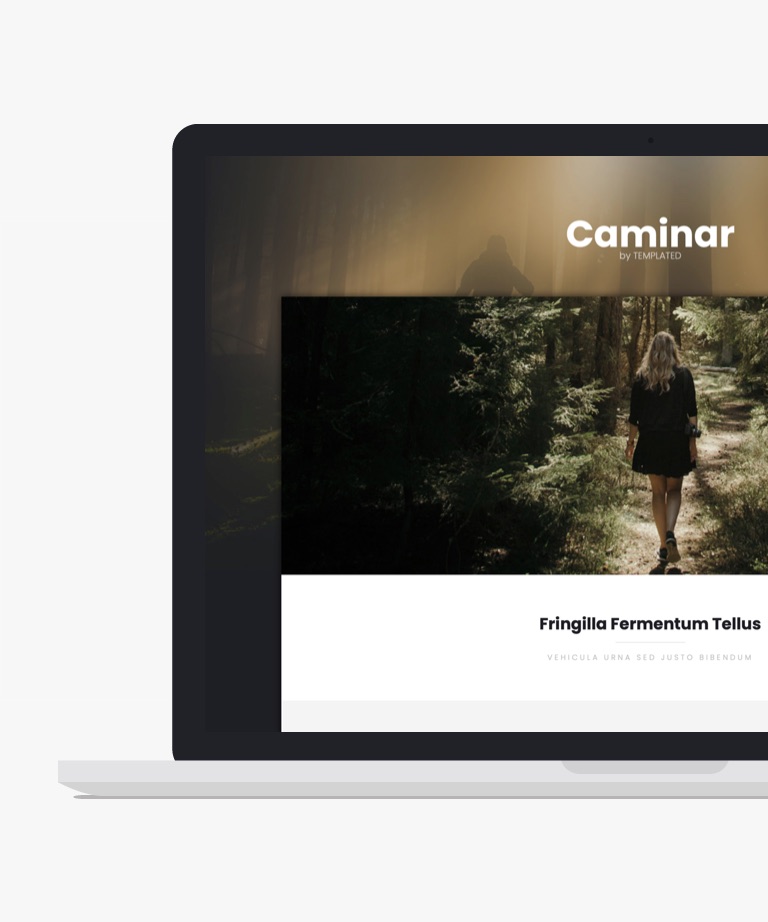
Download
Caminar is a straightforward HTML CSS landing page centered around showcasing photos using a lightbox gallery feature. Its design prioritizes visual content, offering a minimalist and intuitive interface tailored for presenting images in an engaging manner. The template's emphasis on visuals ensures that the spotlight remains on the displayed photos, enhancing their impact and appeal. Caminar's simplicity and focus on imagery make it an ideal choice for individuals or businesses seeking a clean and effective platform to exhibit their visual content or portfolio. With a user-friendly layout and lightbox gallery functionality, this template provides an uncomplicated yet stylish solution for those aiming to create an elegant and visually striking online presence.
-
Free CSS templates
-
Free Simple templates
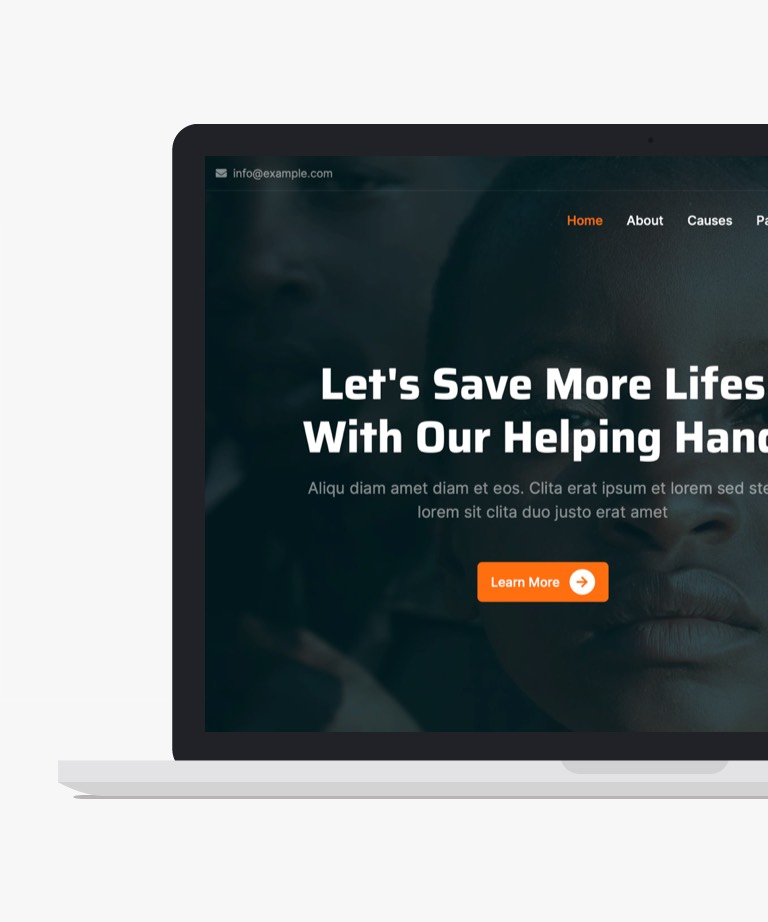
Download
ChariTeam is a free and user-friendly nonprofit website template that is perfect for charity and nonprofit organizations, NGOs, churches, fundraisers, and donation websites. With its fully responsive and mobile-friendly design, this template provides all the necessary features and UI elements for creating a professional website for your organization in no time. No coding skills are required. Built with valid and clean HTML, CSS3, SASS, the latest jQuery, and Bootstrap v5 framework, ChariTeam is easy to customize and compatible with all modern devices and browsers. It also comes with 9+ pre-designed HTML5 demo pages, including Home, About, Causes, Service, Donate, Team, Testimonial, 404 Error, and Contact pages, that can be easily customized to suit your needs. Get started today and make a positive impression on potential donors with ChariTeam.
-
Free Bootstrap templates
-
Free CSS templates
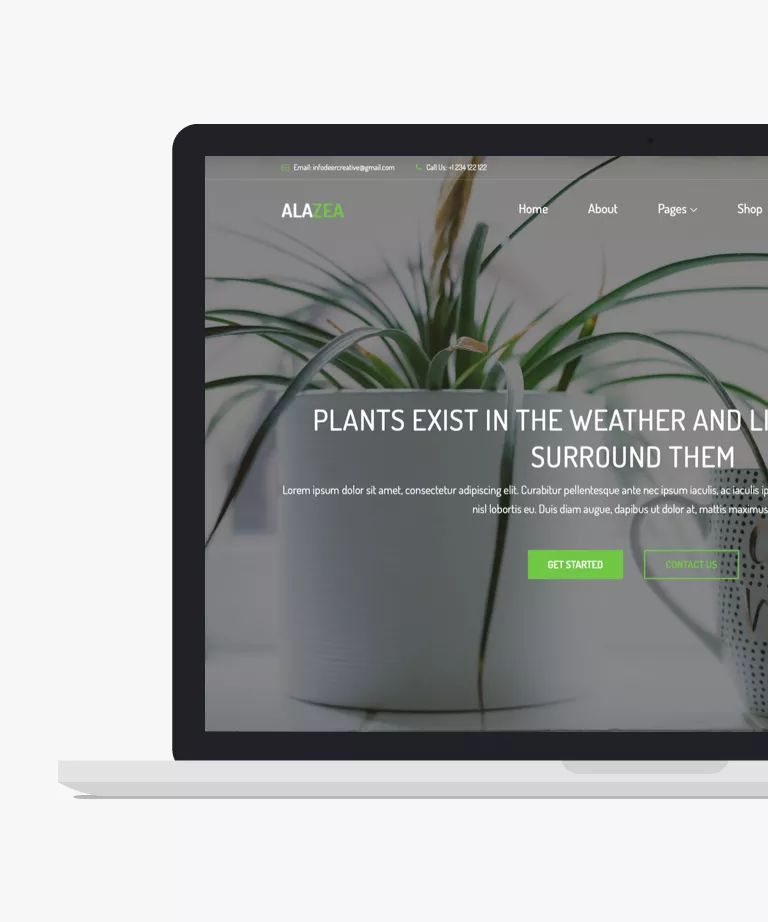
Download
Alazea presents a free Bootstrap 4 HTML5 plant nursery website template, tailored for businesses in the green industry seeking an elegant online presence. Boasting a responsive multi-page layout, Alazea combines modern functionality with a minimalistic and clean design aesthetic. Key features of Alazea include sticky drop-down navigation, Google Maps integration, a zoom-in slideshow with call-to-action buttons, portfolio showcase, and a newsletter subscription form UI. These elements enhance user engagement and facilitate seamless interaction with your audience. Moreover, Alazea offers additional modern touches such as an animated header background, preloader functionality, and intuitive customizing codes, ensuring that building and customizing your website is a straightforward and enjoyable process. With Alazea as your foundation, you can cultivate a captivating online presence for your plant nursery business.
-
Free Bootstrap templates
-
Free CSS templates
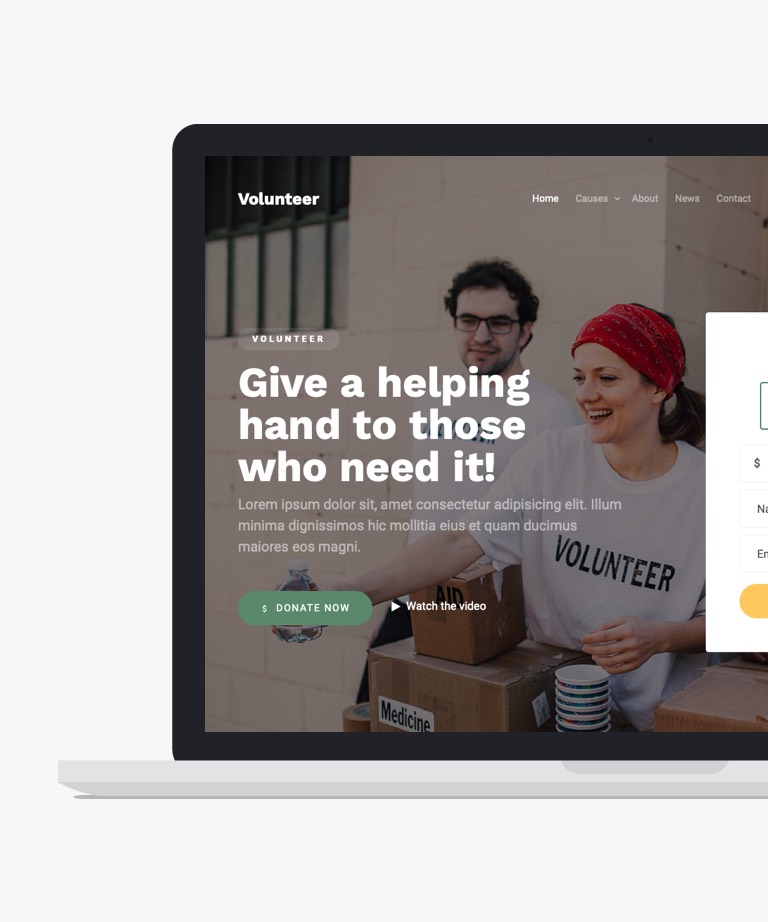
Download
Volunteer is a meticulously crafted and visually appealing free HTML template that offers an array of impressive features to enhance your website. With its donation form, popup video, and animated counter, Volunteer stands out as an ideal choice for non-profit and charity organizations. While Volunteer template is specifically designed for charity-related purposes, its flexibility allows you to adapt and customize it according to your unique needs, provided you possess the necessary coding and design skills. By leveraging the power of Bootstrap, this template ensures a responsive and retina-ready website, guaranteeing a seamless experience for visitors across various devices and screen sizes. The thoughtful inclusion of features such as the donation form facilitates effortless fundraising, while the popup video feature helps you engage and inspire your audience with impactful multimedia content. Additionally, the animated counter adds a dynamic element to showcase your organization's progress and achievements. Whether you're an established non-profit or a budding charity organization, Volunteer offers a visually appealing and functional foundation for building your online presence.
-
Free Bootstrap templates
-
Free CSS templates

Download
Open is a versatile React/Next.js landing page template available for free, designed with Tailwind CSS. It's the perfect choice for developers and makers seeking to create a professional and efficient landing page for various purposes, including open source projects, SaaS products, online services, and more. With its sleek design and customizable features, Open empowers users to showcase their offerings effectively and attractively.
-
Free CSS templates
-
Free Landing page templates
-
Free Simple templates
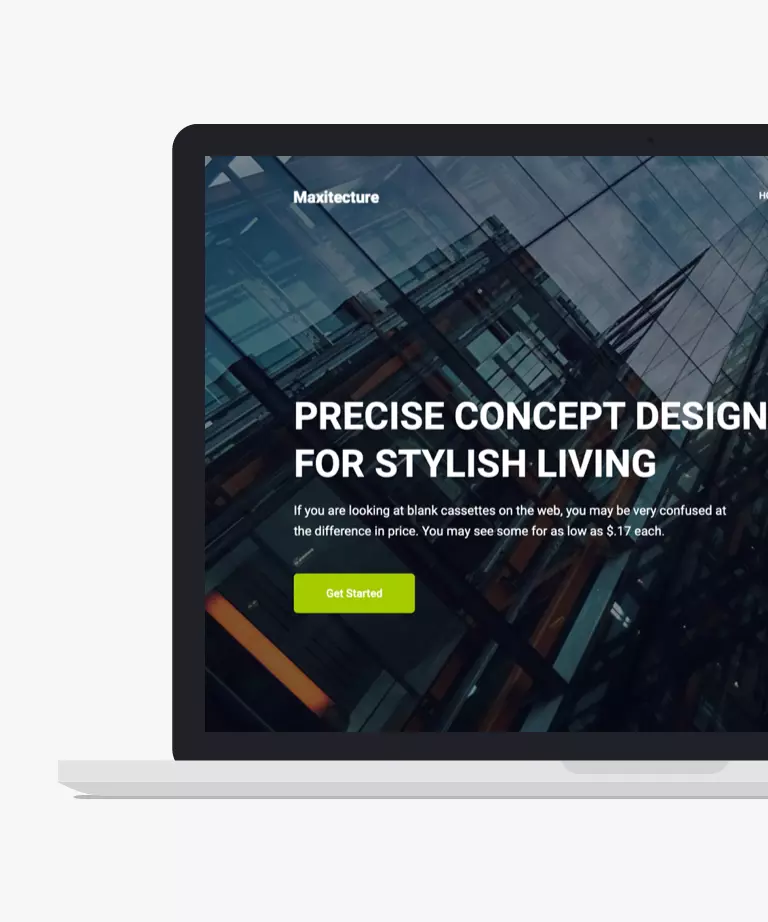
Download
Maxitecture is a free Bootstrap 4 HTML5 website template designed for architecture, interior design, or creative agencies. With a modern and mobile-ready UI, it offers a multi-page layout and sticky navigation for seamless page navigation. Packed with advanced features and assets, Maxitecture includes testimonials, blog archives, and portfolios among its offerings. Additionally, it boasts a hero header, footer widget, newsletter subscription form, breadcrumbs, call-to-action buttons, and Google Maps integration. Accelerate your project with Maxitecture and explore its full potential!
-
Free Architect templates
-
Free Bootstrap templates
-
Free CSS templates
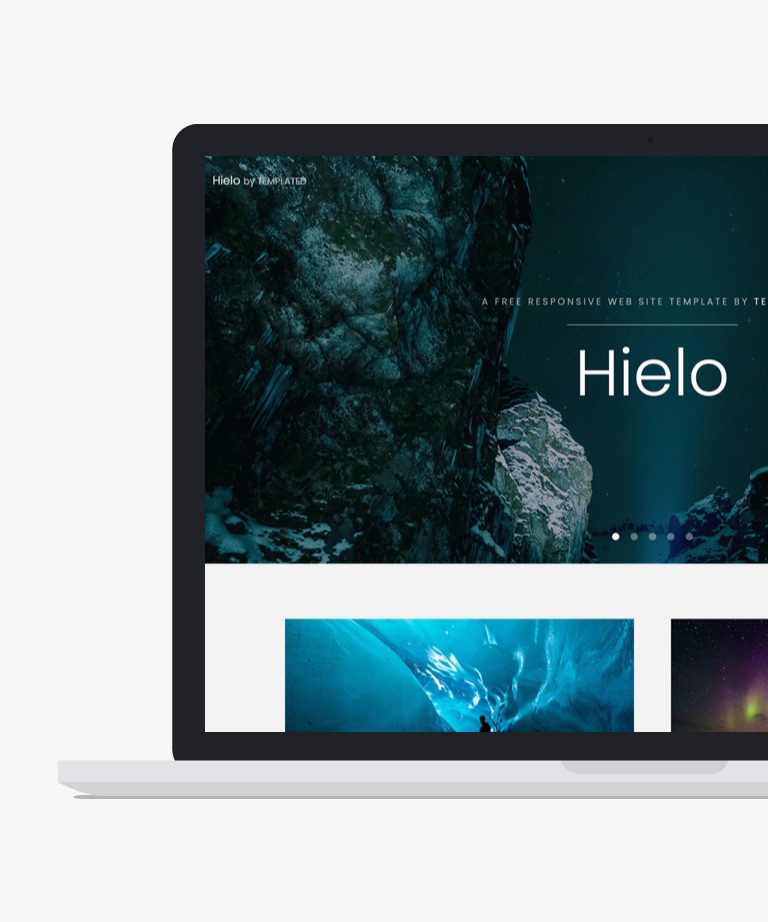
Download
Hielo is an elegantly straightforward CSS template that boasts a captivating parallax banner carousel feature. Its design focuses on simplicity while incorporating an engaging parallax effect within its banner carousel. This minimalist template offers a clean and uncomplicated layout, ideal for users seeking a visually striking yet uncluttered design. Hielo's standout feature, the parallax banner carousel, creates a dynamic and immersive browsing experience, adding depth and allure to the site's visual presentation. With its emphasis on simplicity and the impactful parallax effect, Hielo caters to users looking for an easy-to-navigate and visually appealing CSS template that effortlessly integrates a striking parallax feature into its design.
-
Free CSS templates
-
Free Simple templates

Download
Mixtape is a multi-page HTML and CSS template designed for music, singers, or musical bands across all genres, featuring a dark and edgy aesthetic. Loaded with essential features for a music website, Mixtape includes sections for featured albums, upcoming show schedules, and an audio player, along with an embedded YouTube player. Additionally, it offers pages for single artist or album details and a beautiful discography with on-hover color overlays. Best of all, it's a free Bootstrap 4 HTML5 template tailored for singers, artists, musical bands, and music portfolios. With an intuitive code structure and customizable options, Mixtape also boasts trendy features like a hero header with a slider, call-to-action buttons, load-on-scroll animations, a newsletter subscription form, a contact form, and a blog section. Give your music website a unique identity with Mixtape and unlock its full potential.
-
Free Bootstrap templates
-
Free CSS templates
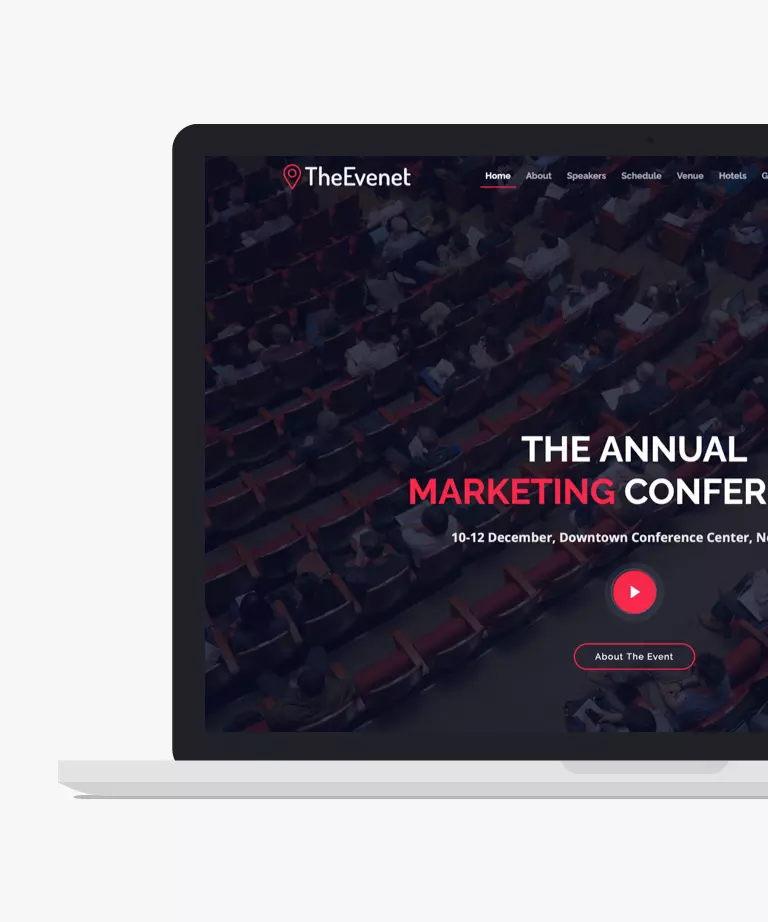
Download
TheEvent is a free Bootstrap 4 HTML5 template crafted for events, conferences, and webinars. With its one-page, responsive layout, it offers a detailed showcase of your event. The template boasts a clean, slick, and minimal design, making it visually appealing. In addition to its aesthetic appeal, TheEvent comes equipped with a range of modern features and assets. These include a modal lightbox video player, Google Maps integration, sticky navigation, image gallery, newsletter subscription form, ticket purchasing with modal ordering form, and contact form. Furthermore, it features load-on-scroll animation and smooth scrolling for seamless navigation. With TheEvent, you can explore, create, and enjoy a professional and informative website for your event
-
Free Bootstrap templates
-
Free CSS templates
-
Free Event templates
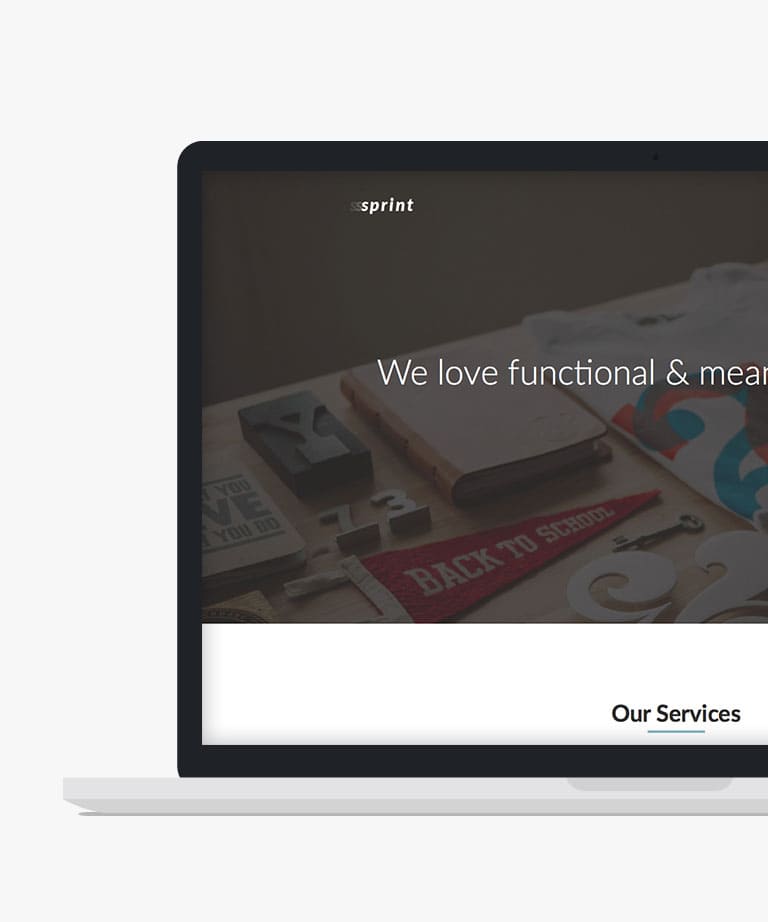
Download
Sprint is a free HTML5 CSS template built with Bootstrap, making it perfect for portfolio websites. It offers a range of additional features that enhance its functionality, such as a carousel for showcasing images or content, retina-ready icon fonts for a crisp and clear display, and a testimonial carousel for highlighting customer feedback and reviews. Sprint provides a clean and modern design that effectively presents your portfolio in a visually appealing manner. The template is easy to customize and responsive, ensuring seamless performance across various devices. With Sprint, you have access to a versatile and user-friendly template that helps you create an impressive online portfolio presence.
-
Free Bootstrap templates
-
Free CSS templates

Download
Kairos is a sleek and tech-savvy mobile app landing page featuring a responsive single-page layout. This free HTML5 mobile app landing page template offers a range of modern features including parallax backgrounds, call-to-action buttons, and a scroll-down button on the header. Designed to showcase mobile apps and mobile-based products, Kairos also includes a style guide with over 20 UI components. Loaded with premium features, Kairos boasts a pricing table, modal Vimeo video player, testimonial carousel, and a sign-up form with custom JavaScript validation. With beautiful typography and an extensive library of font icons such as FontAwesome 5 and Micons, Kairos allows you to shape your mobile app landing page into a stunning showcase for your product.
-
Free App templates
-
Free CSS templates
-
Free Landing page templates

Download
Podca presents a free Bootstrap 4 HTML5 podcast website template, tailor-made for podcasters seeking a sleek and functional online presence. Featuring a responsive multi-page layout, Podca boasts a stylish, clean, and minimalist design, ensuring an engaging user experience. At the heart of Podca lies its audio player, a pivotal element for any podcasting website, seamlessly integrated to showcase your content. Additionally, Podca offers modern features such as parallax effects, reveal-on-scroll animations, and a burger navigation with a sidebar drop-down menu, enhancing the visual appeal and navigation of your site. Furthermore, Podca includes a newsletter subscription form UI and font icons, along with a fully functional contact page, facilitating seamless communication with your audience. With Podca as your foundation, you can embark on your podcasting journey with confidence, creating captivating content and captivating audiences alike.
-
Free Bootstrap templates
-
Free CSS templates

Download
Sportz is a free Bootstrap 4 HTML5 sports website template, meticulously crafted to cater to various sports-related ventures. Boasting a stylish and contemporary design, Sportz offers a plethora of features to elevate your sports website to new heights. At the forefront is a captivating full-screen slider on the header, accentuated by a mesmerizing parallax effect, while a date countdown for the next match adds an element of excitement. Sportz also includes a tabbed content section for displaying match scoreboards, providing users with a seamless browsing experience. With its multi-page layout and responsive design, Sportz ensures optimal performance across all devices. Additionally, its intuitive and flexible nature simplifies the website-building process, making customization a breeze. Other noteworthy features of Sportz include a multi-level drop-down menu and a dedicated team page, further enhancing the functionality and versatility of the template. With Sportz as your canvas, you have the power to create a dynamic and compelling sports website that stands out from the crowd.
-
Free Bootstrap templates
-
Free CSS templates
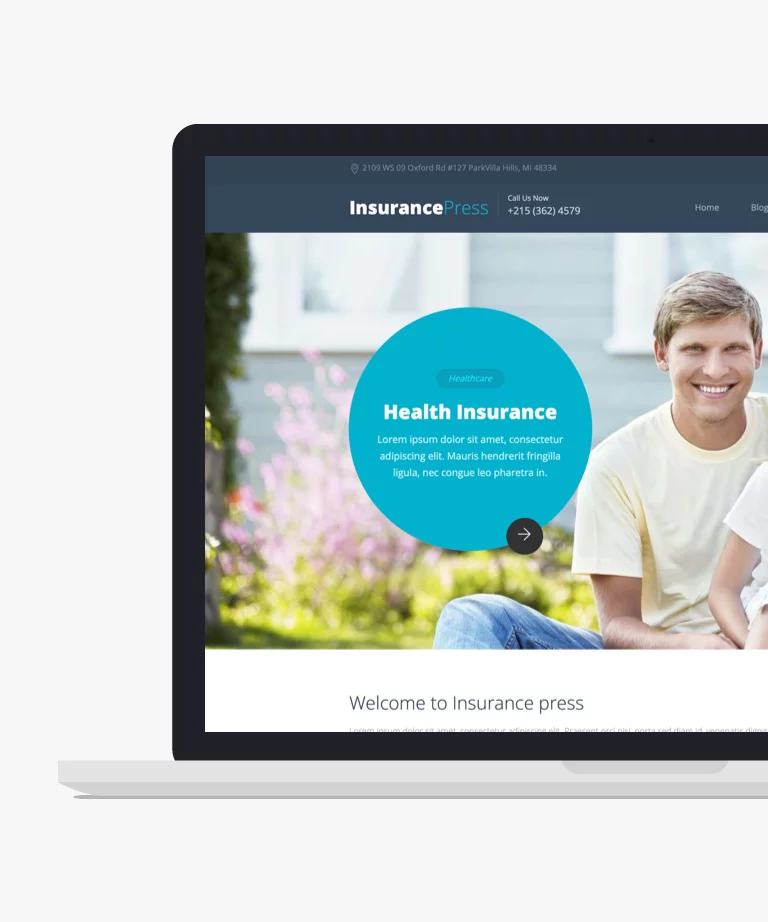
Download
InsurancePress is a purpose-driven free Bootstrap insurance template, meticulously built with a responsive framework and semantic coding. It's tailored perfectly for crafting insurance websites, whether it's for health, care, family, or related purposes. This template is thoughtfully designed and user-friendly. Built on the responsive Bootstrap framework, InsurancePress is available as a free download for both personal and commercial use. However, the free version requires a backlink to BootstrapMart in the footer. For those seeking to remove this backlink, our pro version offers additional features and benefits. Exploring the pro version might be worthwhile for those considering an upgrade.
-
Free Bootstrap templates
-
Free CSS templates
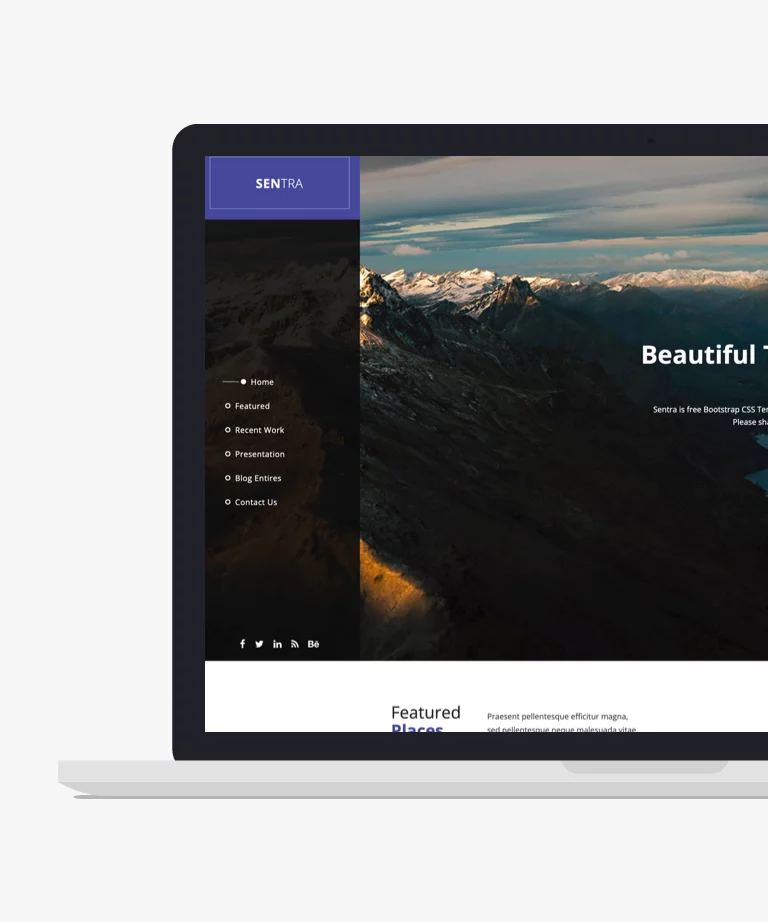
Download
In the realm of free templates, Sentra stands out as a distinctive and reliable free responsive HTML, CSS template. With its exceptional layout and uncommon design, it offers maximum benefits. The welcoming zooming slider greets first-time visitors, complemented by the convenience of a left-side static navigation bar for easy and smooth scrolling. A notable feature is the sidebar indicating the active item as you scroll down. The template provides space for listings on a carousel slider and showcases images through a lightbox gallery. Additionally, the blog segment, featuring tabs, follows the video section, adding another noteworthy element to Sentra.
-
Free CSS templates

Download
Are you in search of a quality free HTML travel template to jumpstart your upcoming travel website project? Look no further! Tour is an exceptional and visually stunning free HTML website template that is perfect for travel-related websites. It's modern design and captivating aesthetics make it an ideal choice for showcasing travel destinations and experiences. This contemporary HTML template boasts five unique demo pages, each carefully crafted using the latest Bootstrap framework. With its responsive layout and seamless integration, Tour ensures that your website looks great on any device or screen size. Its intuitive and user-friendly design allows for easy customization, enabling you to personalize the template to align with your brand and vision. Whether you're an established travel agency or a passionate travel blogger, Tour provides the perfect foundation to create an engaging and immersive online presence. Take advantage of this free HTML template's impressive features and modern design to captivate your audience and inspire wanderlust.
-
Free Bootstrap templates
-
Free CSS templates
-
Free Travel templates

Download
UpConstruction is a responsive HTML5 template built on Bootstrap 5, designed for construction companies and factories, available for free. This template has a clean and well-commented codebase, making it easier to rank higher in search engine results. Its cross-browser compatibility ensures that it works seamlessly on all available browsers and devices, without worrying about broken layouts. UpConstruction multi-page template features a responsive layout with many attractive features, including a beautiful hero header with responsive header carousels and animated scrolling. Other features include testimonial carousels, a burger menu, a back-to-top button, breadcrumbs, a quotation form UI, fun fact counters, a pagination UI, a multi-level dropdown menu bar, a filtered search bar, a comment box UI, contact form UI, geolocation, a detailed footer, and more, making it user-friendly and engaging.
-
Free Bootstrap templates
-
Free CSS templates

Download
Barista Cafe Bootstrap 5 HTML layout is tailored for cafe businesses, featuring a homepage with a captivating zoom effect image slider. The template includes sections for the cafe menu, customer testimonials, and contact information. Additionally, a Reservation Form is thoughtfully designed as a separate HTML page. Feel free to customize and utilize this Bootstrap HTML CSS website template for your barista cafe business. The template is available for use in commercial projects, and more information regarding its free usage rights can be found in the provided details.
-
Free Bootstrap templates
-
Free CSS templates

Download
Drivin is a free, professional, and user-friendly website template designed for driving schools, instructors, and courses. With its clean and modern design, this template provides an effective way to present your driving school to potential clients. It is fully responsive and optimized for performance on all modern devices and web browsers. Built with the latest web technologies like HTML5, CSS3, SASS, JavaScript, and Bootstrap v5 framework, Drivin is fully customizable and easy to use, even for those without advanced coding knowledge. Whether you are a driving instructor or own a driving school, this template is a cost-effective alternative to expensive web development and design costs. The template comes with 9+ pre-defined HTML5 pages, including Home, About, Courses, Features, Appointment, Team, Testimonial, 404 Error, and Contact pages. This makes it easy to create a comprehensive online presence for your driving school, allowing you to launch your website in a short amount of time. With its versatile and flexible design, Drivin is the best choice for building your driving school website.
-
Free Bootstrap templates
-
Free CSS templates
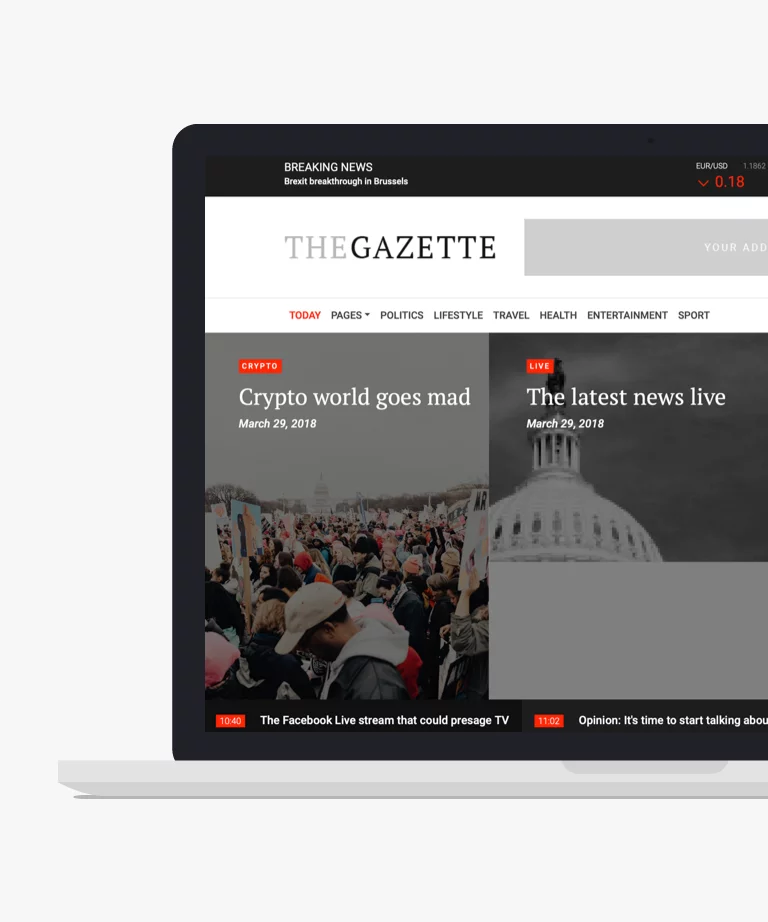
Download
For those venturing into the creation of news or blog websites, TheGazette stands out as a feature-rich free Bootstrap blog HTML and CSS template. The top section immediately captures visitors' attention with breaking news and stock price updates. To enhance monetization possibilities, a dedicated ad space strategically precedes the navigation bar, equipped with a dropdown menu and a convenient search bar. An engaging news scroll seamlessly transitions into a large sliding section, further elevating the overall user experience. But the features don't end there—TheGazette incorporates a practical right sidebar complete with social media icons and an email subscription box, fostering user engagement and connectivity. To ensure effortless navigation, a discreetly placed back-to-top button underscores the template's commitment to user satisfaction. With its wealth of above-the-fold features, TheGazette stands as an outstanding free Bootstrap blog template, making it the perfect choice for presenting the latest news and compelling content. Embark on your online publishing journey with TheGazette and experience the impact of a free yet feature-rich template.
-
Free Blog templates
-
Free Bootstrap templates
-
Free CSS templates
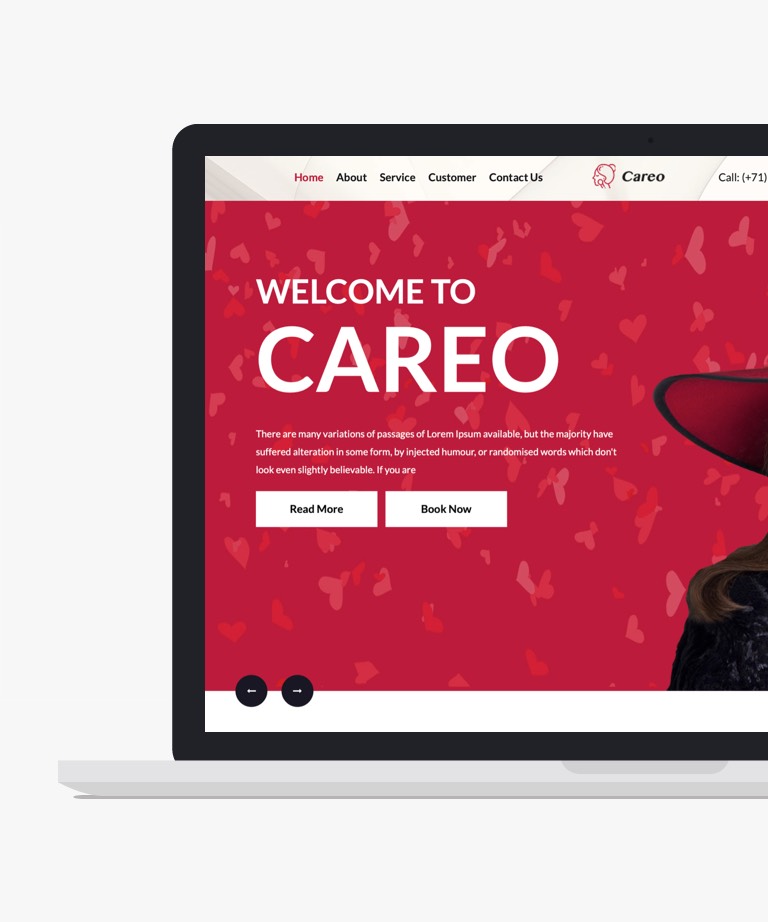
Download
Introducing Careo, a stunning free spa HTML template built on the renowned Bootstrap framework. Careo is specifically designed for websites offering a range of beauty-related services, including hair-cutting, coloring, styling, nail treatments, facials, skincare, tanning, massages, and more. This template boasts a beautiful one-page layout, allowing you to showcase your spa services in an elegant and organized manner. While Careo is a one-page template, it provides a solid foundation for creating subpages to complement your website. The template is developed with valid HTML5, CSS3, and jQuery, ensuring a seamless and interactive user experience. The clean and well-commented code structure of Careo enables easy customization and maintenance. With Careo, you can create a visually captivating spa website that highlights your services and entices visitors. Download this beautiful free HTML template today and elevate your online presence in the beauty industry.
-
Free Bootstrap templates
-
Free CSS templates
What is CSS?
CSS stands for Cascading Style Sheets. It's a style sheet language used to describe the presentation and layout of HTML documents, including how they're displayed on different devices and screen sizes. CSS allows web developers to control the look and feel of multiple web pages at once by centralizing the styling instructions.
By using CSS, you can specify various style rules that define how HTML elements should be displayed. This includes aspects like fonts, colors, spacing, layout, positioning, and responsiveness. CSS rules are written with selectors targeting HTML elements and declarations that define the styling properties for those elements.
Separating the presentation style from the HTML content helps in maintaining consistency across a website and makes it easier to update the visual aspects of a site without having to change every individual page. Additionally, CSS supports responsive design, allowing the adaptation of layouts and styles for different devices, such as desktops, tablets, and mobile phones, enhancing the user experience.
What is HTML?
HTML, or Hypertext Markup Language, is the standard markup language used for creating web pages and web applications. It forms the basic structure and content of web pages by defining the various elements and their layout within a document. HTML utilizes a series of elements or tags to denote different types of content, such as headings, paragraphs, images, links, and more.
The primary purpose of HTML is to structure content on the web, providing a hierarchical order to text and multimedia elements. This structuring enables web browsers to interpret and display the content accurately to users. HTML documents are text files containing the HTML code, consisting of tags wrapped around content, which dictates how the content should be presented and formatted.
HTML is constantly evolving, with new versions and features introduced over time. It works in conjunction with other technologies like CSS (Cascading Style Sheets) and JavaScript to enhance the appearance and functionality of web pages, enabling richer and more interactive web experiences.
What are free HTML CSS templates?
Free HTML CSS templates are pre-designed website layouts comprising HTML (Hypertext Markup Language) for structure and CSS (Cascading Style Sheets) for styling. They provide a foundation for web developers and designers to create websites quickly and efficiently. These templates offer a framework with predefined code structures and styling elements, aiding in the creation of websites without starting from scratch.
These templates come in various designs and styles, catering to different purposes like business websites, portfolios, blogs, e-commerce sites, and more. They often include basic features such as headers, navigation menus, content sections, and footers, serving as a starting point for customization.
What are the benefits of free HTML CSS templates?
Free HTML CSS templates offer cost-efficient solutions for website creation, saving money on design expenses. They provide pre-built structures, reducing development time. These templates are user-friendly and come with well-organized code and documentation. They ensure visual consistency across the website's elements. Many templates are responsive, catering to various devices seamlessly. They can serve as valuable learning tools for beginners studying HTML and CSS. However, limitations in customization options and uniqueness may exist, and some templates might require attribution to their creators.
What are the disadvantages of free HTML CSS templates?
Free HTML CSS templates may lack uniqueness, leading to similar designs across websites. They might have limited customization options compared to premium templates. Some free templates could have outdated code or lack regular updates. Attribution requirements to the template creator might be mandatory in certain cases. They might not always offer extensive support or documentation. Additionally, free templates could lack certain advanced features or functionalities present in premium versions.